Shows
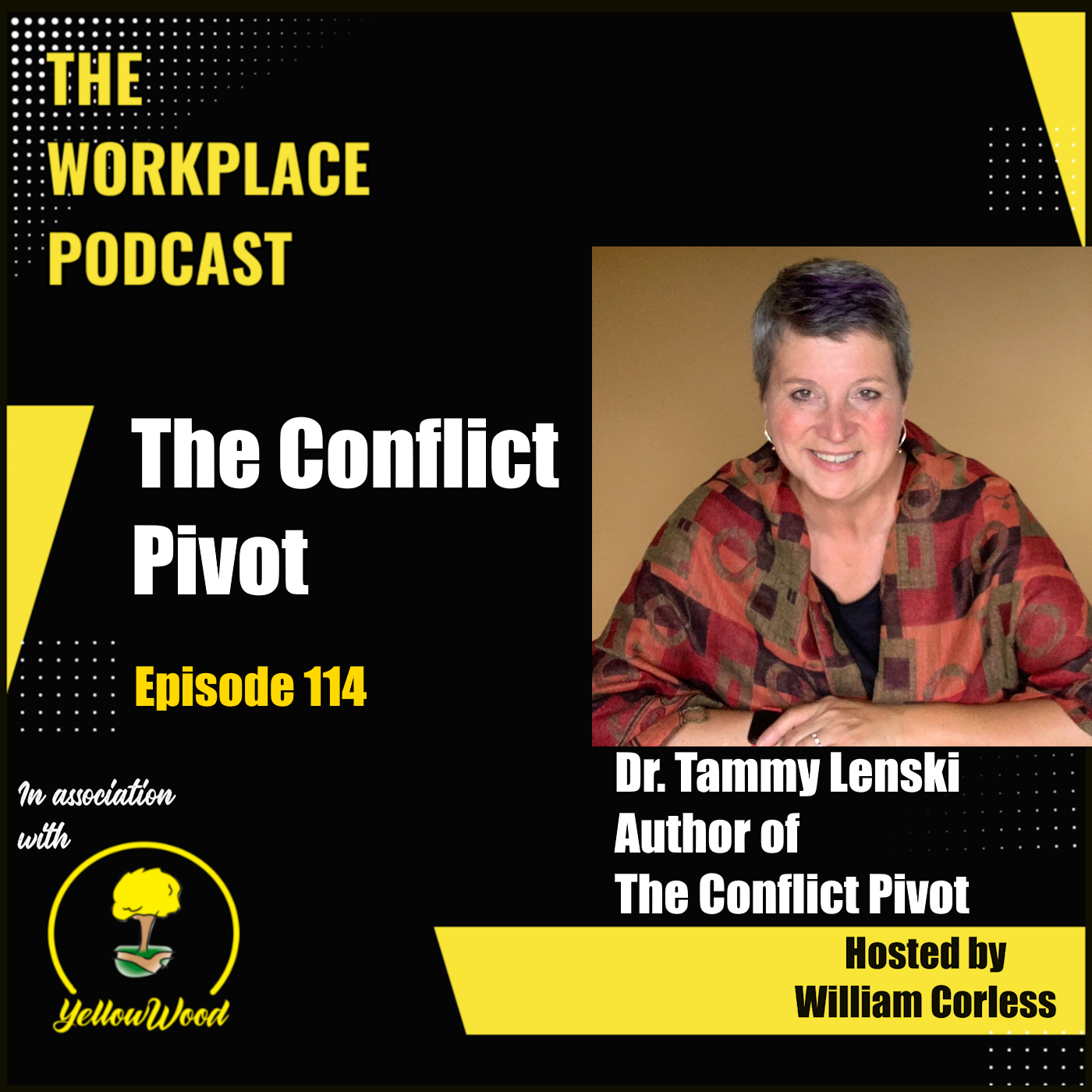 The Workplace Podcast in association with YellowWoodEpisode 114: The Conflict Pivot with Tammy LenskiIn the latest episode of The Workplace Podcast, William Corless sits down with Dr. Tammy Lenski to discuss her groundbreaking book "The Conflict Pivot: Turning Conflict into Peace of Mind."
Since 1997 Dr. Tammy Lenski has worked with individuals and organizations worldwide as a mediator, executive coach, speaker, and educator. Her work centres on addressing conflict in ongoing personal, team, and business relationships.
Tammy has mediated thousands of private, court-affiliated, and online cases. She was in eBay's first group of online mediators in 1999 and on the first panel of probate court mediators in the U.S...2025-04-251h 01
The Workplace Podcast in association with YellowWoodEpisode 114: The Conflict Pivot with Tammy LenskiIn the latest episode of The Workplace Podcast, William Corless sits down with Dr. Tammy Lenski to discuss her groundbreaking book "The Conflict Pivot: Turning Conflict into Peace of Mind."
Since 1997 Dr. Tammy Lenski has worked with individuals and organizations worldwide as a mediator, executive coach, speaker, and educator. Her work centres on addressing conflict in ongoing personal, team, and business relationships.
Tammy has mediated thousands of private, court-affiliated, and online cases. She was in eBay's first group of online mediators in 1999 and on the first panel of probate court mediators in the U.S...2025-04-251h 01 Disagree betterUse these 5 phrases to air your grievances and get heardHow to skip the drama and the rumination and raise a concern so they’ll actually listen.
Find Tammy's episode transcript and links here and the printable cheat sheet here.
Subscribe to my monthly Subtack newsletter here.2024-02-2306 min
Disagree betterUse these 5 phrases to air your grievances and get heardHow to skip the drama and the rumination and raise a concern so they’ll actually listen.
Find Tammy's episode transcript and links here and the printable cheat sheet here.
Subscribe to my monthly Subtack newsletter here.2024-02-2306 min Disagree betterIdentify a problem’s primary drivers with a relationship diagramOne reason agreements and solutions fail is that they don’t sufficiently identify and address the root causes of the problem. Another is that they address behavioral elements of the conflict without also addressing systemic elements that drive the behavior. The Relationship Diagram is an excellent tool for overcoming both of these problem-solving hurdles.
Relationship diagram demo (video)
Episode transcript
Frame a solvable problem
To automatically receive transcripts of new episodes, plus Tammy's newsletter, subscribe here.2023-12-0506 min
Disagree betterIdentify a problem’s primary drivers with a relationship diagramOne reason agreements and solutions fail is that they don’t sufficiently identify and address the root causes of the problem. Another is that they address behavioral elements of the conflict without also addressing systemic elements that drive the behavior. The Relationship Diagram is an excellent tool for overcoming both of these problem-solving hurdles.
Relationship diagram demo (video)
Episode transcript
Frame a solvable problem
To automatically receive transcripts of new episodes, plus Tammy's newsletter, subscribe here.2023-12-0506 min Disagree betterGetting through the day with a bit of graceShould our conflict partners have to earn or deserve our good graces for us to show them generosity of spirit when they’re acting badly? Here’s a way to disagree better even when we think we’re handling the encounter well and they’re not.
Episode transcript
Seeing the equal human in front of us
Susan Cain's website
To automatically receive transcripts of new episodes, plus Tammy's newsletter, subscribe here.2023-10-3104 min
Disagree betterGetting through the day with a bit of graceShould our conflict partners have to earn or deserve our good graces for us to show them generosity of spirit when they’re acting badly? Here’s a way to disagree better even when we think we’re handling the encounter well and they’re not.
Episode transcript
Seeing the equal human in front of us
Susan Cain's website
To automatically receive transcripts of new episodes, plus Tammy's newsletter, subscribe here.2023-10-3104 min Disagree betterStop rehearsing your stuck storyLike a movie trailer, your Stuck Story is a montage of the most interesting moments in a conflict, with certain scenes magnified and others omitted. It’s not the story of the conflict; it’s your story of the conflict. It’s not helpful to keep repeating your Stuck Story, either to yourself or to others. Here’s why and how to stop the unintended rehearsals.
Episode transcript
About neural pathways
My book, The Conflict Pivot
To automatically receive transcripts of new episodes, plus Tammy's newsletter, subscribe here.2023-10-0304 min
Disagree betterStop rehearsing your stuck storyLike a movie trailer, your Stuck Story is a montage of the most interesting moments in a conflict, with certain scenes magnified and others omitted. It’s not the story of the conflict; it’s your story of the conflict. It’s not helpful to keep repeating your Stuck Story, either to yourself or to others. Here’s why and how to stop the unintended rehearsals.
Episode transcript
About neural pathways
My book, The Conflict Pivot
To automatically receive transcripts of new episodes, plus Tammy's newsletter, subscribe here.2023-10-0304 min Disagree betterHow to deal with stonewalling in a relationship at work or homeStonewalling makes conflict conversations more difficult and can damage vital relationships. So what can you do if you want to talk out a problem, but the other person is stonewalling? Start by understanding how the present circumstances may be driving the behavior.
Episode transcript
When they're not ready to talk
How to navigate the "not my problem" problem
A question to help make sure you're solving the same problem
The "real issue" black hole
Instead of labeling, describe the behavior
To automatically receive transcripts of new episodes, plus Tammy's newsletter, subscribe here.2023-09-0510 min
Disagree betterHow to deal with stonewalling in a relationship at work or homeStonewalling makes conflict conversations more difficult and can damage vital relationships. So what can you do if you want to talk out a problem, but the other person is stonewalling? Start by understanding how the present circumstances may be driving the behavior.
Episode transcript
When they're not ready to talk
How to navigate the "not my problem" problem
A question to help make sure you're solving the same problem
The "real issue" black hole
Instead of labeling, describe the behavior
To automatically receive transcripts of new episodes, plus Tammy's newsletter, subscribe here.2023-09-0510 min Disagree betterDon't bury anger's lede (replay)I'm on summer break and will be back with a new episode next month. In the meantime, enjoy this replay from the archives.
Episode transcript
To automatically receive transcripts of new episodes, plus Tammy's newsletter, subscribe here.2023-08-0203 min
Disagree betterDon't bury anger's lede (replay)I'm on summer break and will be back with a new episode next month. In the meantime, enjoy this replay from the archives.
Episode transcript
To automatically receive transcripts of new episodes, plus Tammy's newsletter, subscribe here.2023-08-0203 min Disagree betterThe illusion of understandingWhen someone is steadfastly committed to their position in an argument, the best we can do sometimes is create just a tiny bit of wiggle room in their thinking, enough to soften their position and give the conversation somewhere to go. Here’s one way to do it.
Episode transcript
The Knowledge Illusion by Steven Sloman and Philip Fernbach
To automatically receive transcripts of new episodes, plus Tammy's newsletter, subscribe here.2023-07-0407 min
Disagree betterThe illusion of understandingWhen someone is steadfastly committed to their position in an argument, the best we can do sometimes is create just a tiny bit of wiggle room in their thinking, enough to soften their position and give the conversation somewhere to go. Here’s one way to do it.
Episode transcript
The Knowledge Illusion by Steven Sloman and Philip Fernbach
To automatically receive transcripts of new episodes, plus Tammy's newsletter, subscribe here.2023-07-0407 min Disagree betterGet into their movieIt’s hard to stand in someone else’s shoes when we’re in the middle of a conflict with them, even when we know that understanding their perspective is important. Here’s a trick of the mind that makes perspective-taking easier.
Episode transcript
The Zen of Listening by Rebecca Shafir
The negative effects of trying to stand in their shoes
More on practicing in low-stakes situations
To automatically receive transcripts of new episodes, plus Tammy's newsletter, subscribe here.2023-06-0504 min
Disagree betterGet into their movieIt’s hard to stand in someone else’s shoes when we’re in the middle of a conflict with them, even when we know that understanding their perspective is important. Here’s a trick of the mind that makes perspective-taking easier.
Episode transcript
The Zen of Listening by Rebecca Shafir
The negative effects of trying to stand in their shoes
More on practicing in low-stakes situations
To automatically receive transcripts of new episodes, plus Tammy's newsletter, subscribe here.2023-06-0504 min Disagree betterA question to help ease suffering during conflictConflict and suffering are bedfellows. When we’re trying to help others in conflict, whether as mediators, leaders, or family members, we can help them better if we can turn toward their suffering instead of withdrawing from it.
Episode transcript
An article about Epstein's and Black's work
Small caring actions to ease suffering
Every conflict contains a bid to be seen
To automatically receive transcripts of new episodes, plus Tammy's newsletter, subscribe here.2023-05-0204 min
Disagree betterA question to help ease suffering during conflictConflict and suffering are bedfellows. When we’re trying to help others in conflict, whether as mediators, leaders, or family members, we can help them better if we can turn toward their suffering instead of withdrawing from it.
Episode transcript
An article about Epstein's and Black's work
Small caring actions to ease suffering
Every conflict contains a bid to be seen
To automatically receive transcripts of new episodes, plus Tammy's newsletter, subscribe here.2023-05-0204 min Disagree betterWalk it out to work it outMost of us sit down together to sort out tension and conflict. We meet over coffee, or gather at the conference table, or sit down for a family meeting. We might well benefit more from walking conflict resolution than sitting, and here’s the science to explain why.
Episode transcript
2014 Stanford University research
2022 Max Planck Institute research
A long walk with two mediation clients
To automatically receive transcripts of new episodes, plus Tammy's newsletter, subscribe here.2023-04-0406 min
Disagree betterWalk it out to work it outMost of us sit down together to sort out tension and conflict. We meet over coffee, or gather at the conference table, or sit down for a family meeting. We might well benefit more from walking conflict resolution than sitting, and here’s the science to explain why.
Episode transcript
2014 Stanford University research
2022 Max Planck Institute research
A long walk with two mediation clients
To automatically receive transcripts of new episodes, plus Tammy's newsletter, subscribe here.2023-04-0406 min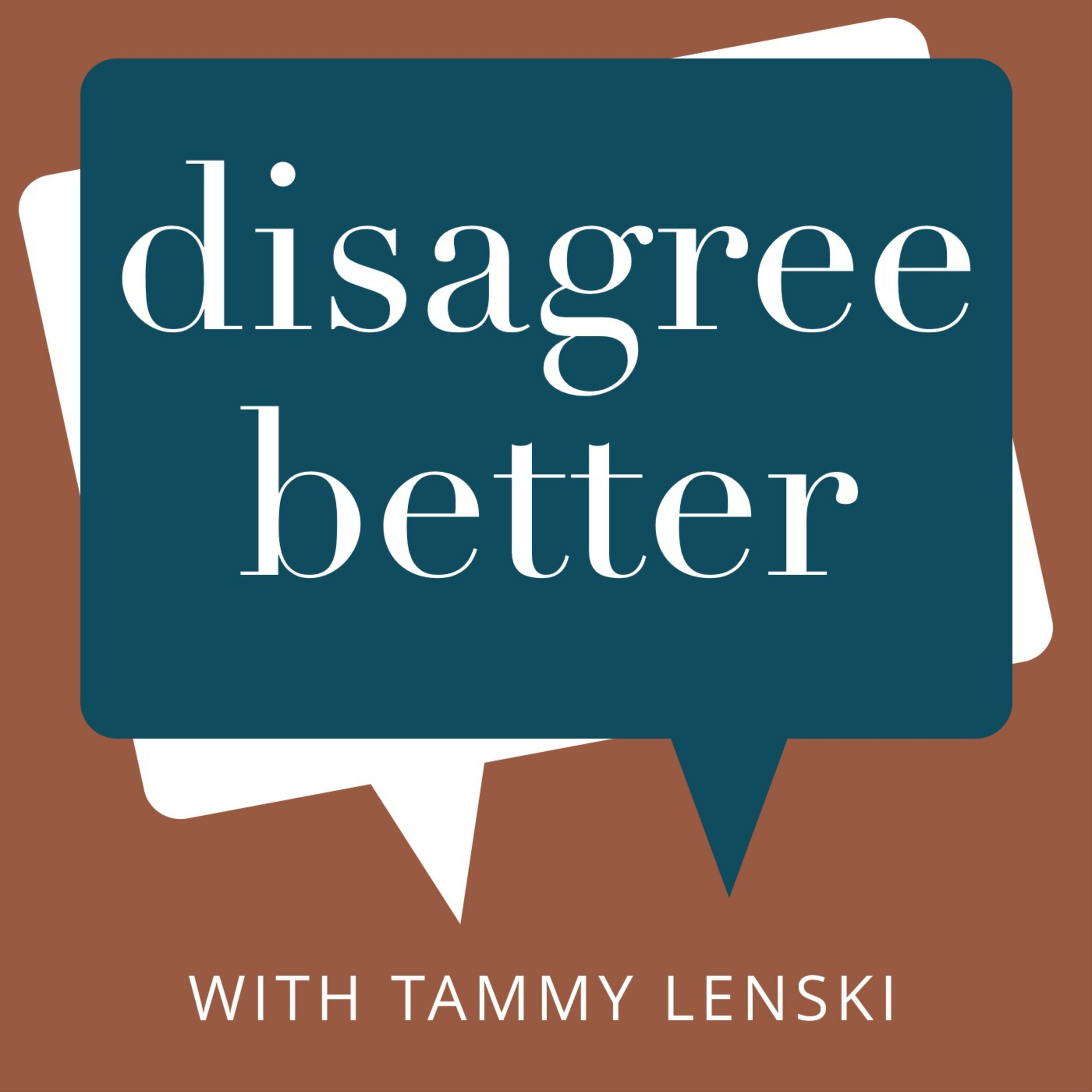 Disagree betterA powerful way to change conflict habitsMy conflict work used to center squarely on helping people have the conversations that resolve conflict. As my work has shifted over the last decade to being more about helping people approach conflict in ways that don’t require my presence to be successful, some of what I do is about shifting conflict-related habits. Here’s one approach that can be very powerful.
Episode transcript
The "as if" technique
Ruth Chang's method for making hard choices
Atomic Habits by James Clear
More on recurring small wins
To automatically receive transcripts of new episodes, plus Tammy's newsletter, subscribe here...2023-02-2806 min
Disagree betterA powerful way to change conflict habitsMy conflict work used to center squarely on helping people have the conversations that resolve conflict. As my work has shifted over the last decade to being more about helping people approach conflict in ways that don’t require my presence to be successful, some of what I do is about shifting conflict-related habits. Here’s one approach that can be very powerful.
Episode transcript
The "as if" technique
Ruth Chang's method for making hard choices
Atomic Habits by James Clear
More on recurring small wins
To automatically receive transcripts of new episodes, plus Tammy's newsletter, subscribe here...2023-02-2806 min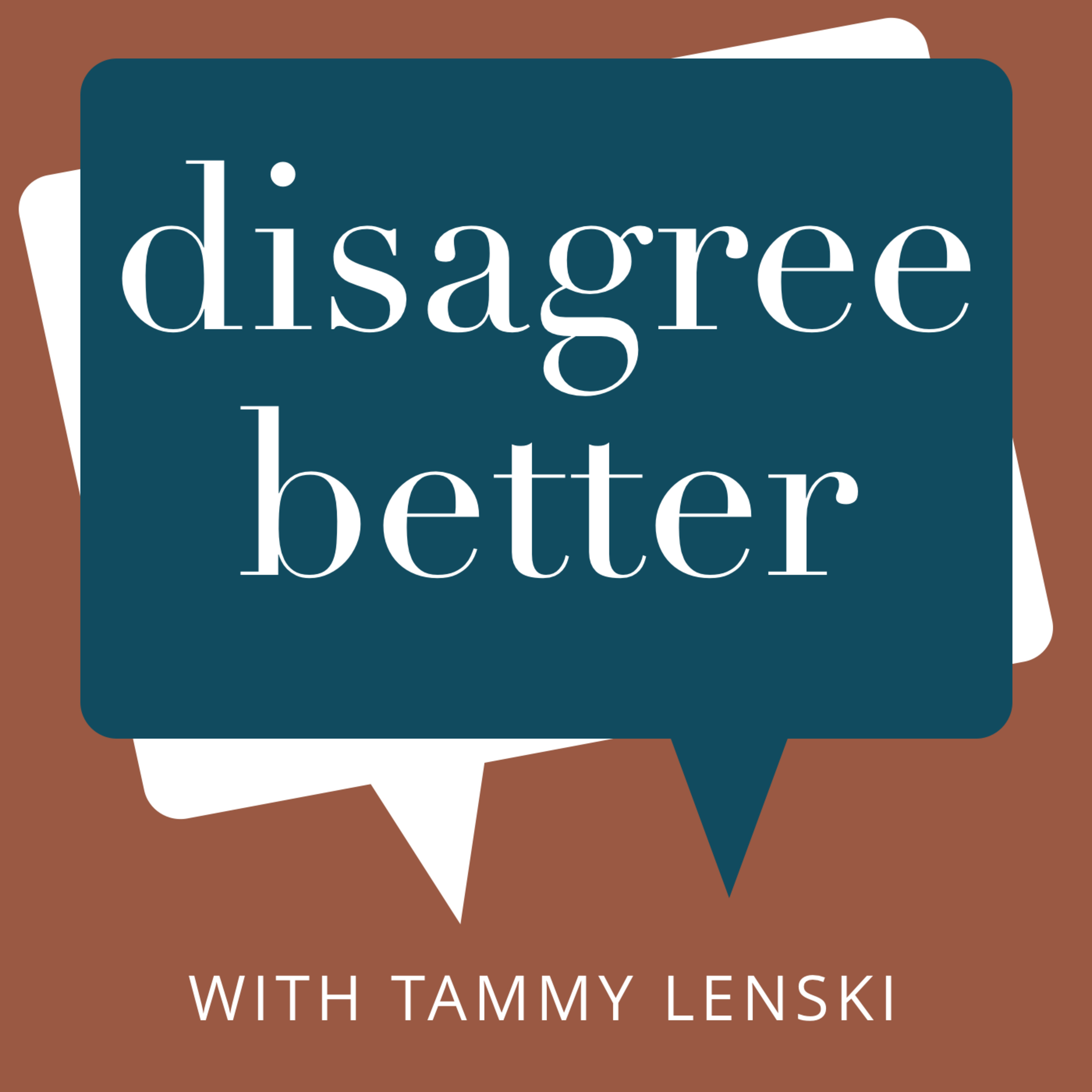 Disagree betterGenerate more creative solutions with this questionWhen faced with a problem, we often ask ourselves or others, “What should we do?” It’s not a bad question at all, but research suggests a better question for prompting more creative solutions.
Episode transcript
The 2018 research
Source of the restaurant story
To automatically receive transcripts of new episodes, plus Tammy's newsletter, subscribe here.2023-02-0103 min
Disagree betterGenerate more creative solutions with this questionWhen faced with a problem, we often ask ourselves or others, “What should we do?” It’s not a bad question at all, but research suggests a better question for prompting more creative solutions.
Episode transcript
The 2018 research
Source of the restaurant story
To automatically receive transcripts of new episodes, plus Tammy's newsletter, subscribe here.2023-02-0103 min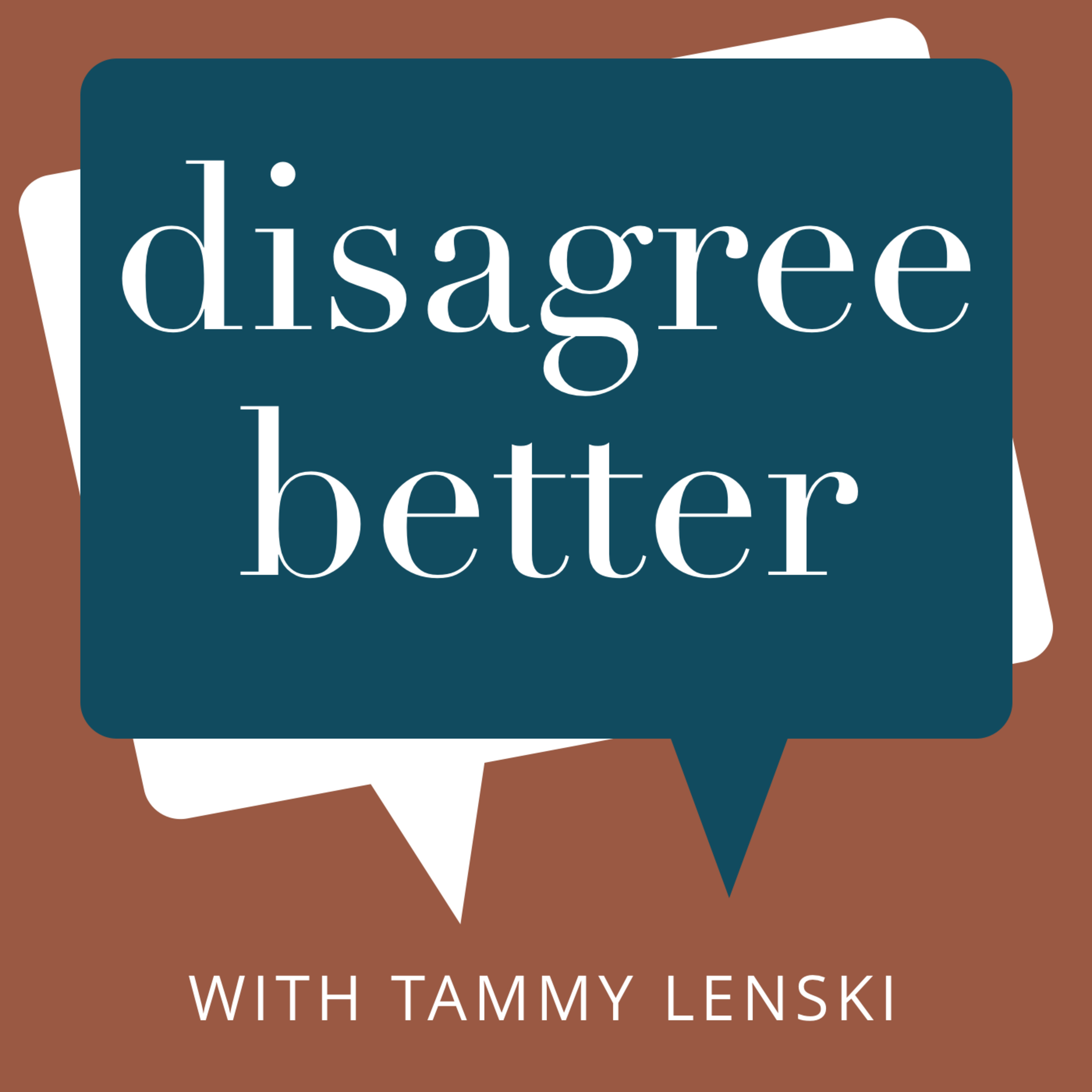 Disagree betterDon’t avoid small fightsSure, it’s good to pick your fights. Life is short, after all. But that doesn’t mean you should avoid the small fights as a matter of course. The small fights are the places you get better managing your own or others’ conflicts, preparing you for more difficult conversations.
Episode transcript
The problem with totalizing
The sample list of things to practice, along with information about each
To automatically receive transcripts of new episodes, plus Tammy's newsletter, subscribe here.2023-01-0306 min
Disagree betterDon’t avoid small fightsSure, it’s good to pick your fights. Life is short, after all. But that doesn’t mean you should avoid the small fights as a matter of course. The small fights are the places you get better managing your own or others’ conflicts, preparing you for more difficult conversations.
Episode transcript
The problem with totalizing
The sample list of things to practice, along with information about each
To automatically receive transcripts of new episodes, plus Tammy's newsletter, subscribe here.2023-01-0306 min Disagree betterAsk this simple question to help regulate emotionsWhen conflict kindles unwelcome emotions, we want relief. There’s a well-researched emotion regulation technique that reliably dampens the effect of unwelcome emotions, and all we need to remember is one simple question.
Episode transcript
The 2007 research
The 2018 research
The 2021 research
Using writing to boost performance in pressure-filled situations
To automatically receive transcripts of new episodes, plus Tammy's newsletter, subscribe here.2022-12-3005 min
Disagree betterAsk this simple question to help regulate emotionsWhen conflict kindles unwelcome emotions, we want relief. There’s a well-researched emotion regulation technique that reliably dampens the effect of unwelcome emotions, and all we need to remember is one simple question.
Episode transcript
The 2007 research
The 2018 research
The 2021 research
Using writing to boost performance in pressure-filled situations
To automatically receive transcripts of new episodes, plus Tammy's newsletter, subscribe here.2022-12-3005 min Disagree betterSometimes it’s not a conversation that changes their mindWhen we try to talk out a problem with someone, and conversation hasn’t yielded the results we hoped, we may find ourselves withdrawing from them. But as Nobel Peace Prize laureate Malala Yousafzai reminds us, there’s often a better choice.
Episode transcript
The conversation between Nobel Peace Prize laureate Malala Yousafzai and Dr. Laurie Santos
More on my grad students' assignment to have a difficult conversation
Shared everyday experiences for re-establishing the connection that conflict has splintered
Buy Tammy a coffee
To automatically receive transcripts of new episodes, plus Tammy's newsletter, subscribe here.2022-11-0804 min
Disagree betterSometimes it’s not a conversation that changes their mindWhen we try to talk out a problem with someone, and conversation hasn’t yielded the results we hoped, we may find ourselves withdrawing from them. But as Nobel Peace Prize laureate Malala Yousafzai reminds us, there’s often a better choice.
Episode transcript
The conversation between Nobel Peace Prize laureate Malala Yousafzai and Dr. Laurie Santos
More on my grad students' assignment to have a difficult conversation
Shared everyday experiences for re-establishing the connection that conflict has splintered
Buy Tammy a coffee
To automatically receive transcripts of new episodes, plus Tammy's newsletter, subscribe here.2022-11-0804 min Disagree betterHow to confront someone without seeming confrontationalConfronting is an essential conflict resolution and supervisory skill, yet it can feel risky and uncomfortable. We don’t want to seem confrontational or aggressive, and we do want to feel confident that confronting might make a difference. Here’s a mediator’s tip for how to confront someone and raise an issue without seeming antagonistic or argumentative.
Episode transcript
Evaluating whether we should raise an issue or let it go
Buy Tammy a coffee
To automatically receive transcripts of new episodes, plus Tammy's newsletter, subscribe here.2022-10-2507 min
Disagree betterHow to confront someone without seeming confrontationalConfronting is an essential conflict resolution and supervisory skill, yet it can feel risky and uncomfortable. We don’t want to seem confrontational or aggressive, and we do want to feel confident that confronting might make a difference. Here’s a mediator’s tip for how to confront someone and raise an issue without seeming antagonistic or argumentative.
Episode transcript
Evaluating whether we should raise an issue or let it go
Buy Tammy a coffee
To automatically receive transcripts of new episodes, plus Tammy's newsletter, subscribe here.2022-10-2507 min Disagree betterThree essential components of highly effective listeningHighly effective listening is a conflict resolution superpower — it reduces defensiveness, diminishes extreme reaction, and increases open-mindedness. And it’s learnable. To be a highly effective listener, pay particular attention to these three essential components of great listening.
Episode transcript
The journal article
Every conflict contains a bid to be seen
Multitasking is bad for good listening
The downside of copious note-taking
Practicing transparency when overwhelmed by a long-winded talker
Seeing the equal human in front of us
Leading with our curiosity
The downsides of setting ground rules at the beginning of a mediation
Buy Tammy a coffee
To...2022-10-1106 min
Disagree betterThree essential components of highly effective listeningHighly effective listening is a conflict resolution superpower — it reduces defensiveness, diminishes extreme reaction, and increases open-mindedness. And it’s learnable. To be a highly effective listener, pay particular attention to these three essential components of great listening.
Episode transcript
The journal article
Every conflict contains a bid to be seen
Multitasking is bad for good listening
The downside of copious note-taking
Practicing transparency when overwhelmed by a long-winded talker
Seeing the equal human in front of us
Leading with our curiosity
The downsides of setting ground rules at the beginning of a mediation
Buy Tammy a coffee
To...2022-10-1106 min Disagree betterAn upside to recurring conflict: Relational stress woodRecurring conflict doesn’t automatically signal that a personal or professional relationship is in trouble. Teams, couples, and families that experience conflict can develop a figurative “stress wood” that makes for resilient relationships.
Episode transcript
About Biosphere 2
About trees and stress wood
How conflict avoidance can cause bigger conflict later
When parents avoid disagreeing in front of child or routinely break up sibling arguments
When parents prevent their child from expressing emotions
How healthy relationships benefit from conflict
Buy Tammy a coffee
To automatically receive transcripts of new episodes, plus Tammy's newsletter, subscribe here.2022-09-1306 min
Disagree betterAn upside to recurring conflict: Relational stress woodRecurring conflict doesn’t automatically signal that a personal or professional relationship is in trouble. Teams, couples, and families that experience conflict can develop a figurative “stress wood” that makes for resilient relationships.
Episode transcript
About Biosphere 2
About trees and stress wood
How conflict avoidance can cause bigger conflict later
When parents avoid disagreeing in front of child or routinely break up sibling arguments
When parents prevent their child from expressing emotions
How healthy relationships benefit from conflict
Buy Tammy a coffee
To automatically receive transcripts of new episodes, plus Tammy's newsletter, subscribe here.2022-09-1306 min Disagree betterThe triviality trapWhen you're tempted to dismiss someone's concern as trivial or roll your eyes at the things people find to fight over, it's time to sit up straight and pay attention. You're missing something, and it could be important.
Episode transcript
Buy Tammy a coffee
To automatically receive transcripts of new episodes, plus Tammy's newsletter, subscribe here.2022-08-1605 min
Disagree betterThe triviality trapWhen you're tempted to dismiss someone's concern as trivial or roll your eyes at the things people find to fight over, it's time to sit up straight and pay attention. You're missing something, and it could be important.
Episode transcript
Buy Tammy a coffee
To automatically receive transcripts of new episodes, plus Tammy's newsletter, subscribe here.2022-08-1605 min Disagree betterThe foreseeable nowThis episode is a little different than my usual episodes -- I'm sharing Lu Hanessian's interview of me for The Foreseeable Now podcast. I hope you'll use the link below to listen to our wide-ranging conversation about good conflict resolution.
Find the interview here
To automatically receive transcripts of new episodes, plus Tammy's newsletter, subscribe here.2022-08-0301 min
Disagree betterThe foreseeable nowThis episode is a little different than my usual episodes -- I'm sharing Lu Hanessian's interview of me for The Foreseeable Now podcast. I hope you'll use the link below to listen to our wide-ranging conversation about good conflict resolution.
Find the interview here
To automatically receive transcripts of new episodes, plus Tammy's newsletter, subscribe here.2022-08-0301 min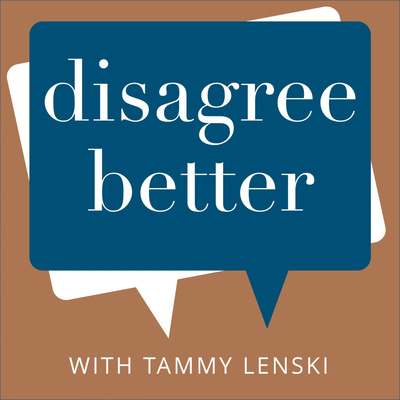 Disagree betterBe a better listener with this one crucial habitYou’ll be a better listener when you disagree with someone if you can first master better listening in your everyday conversations. Here’s a good place to start: Trade shift responses for support responses.
Episode transcript
Celeste Headlee
Charles Derber
Stealing someone's story
Holding the space
Buy Tammy a coffee
To automatically receive transcripts of new episodes, plus Tammy's newsletter, subscribe here.2022-06-2506 min
Disagree betterBe a better listener with this one crucial habitYou’ll be a better listener when you disagree with someone if you can first master better listening in your everyday conversations. Here’s a good place to start: Trade shift responses for support responses.
Episode transcript
Celeste Headlee
Charles Derber
Stealing someone's story
Holding the space
Buy Tammy a coffee
To automatically receive transcripts of new episodes, plus Tammy's newsletter, subscribe here.2022-06-2506 min Disagree betterA mindfulness technique for managing the urge to lash outWhen frustration or anger hijacks us, we may say or do things we regret. Here’s an uncomplicated mindfulness technique for managing the urge to lash out — and for managing other troublesome impulses too.
Episode transcript
Why it's hard to reason someone back into reasonableness
Why it's good to interrupt rumination
Buy Tammy a coffee
To receive transcripts of new episodes automatically, plus Tammy's newsletter, subscribe here.2022-05-2805 min
Disagree betterA mindfulness technique for managing the urge to lash outWhen frustration or anger hijacks us, we may say or do things we regret. Here’s an uncomplicated mindfulness technique for managing the urge to lash out — and for managing other troublesome impulses too.
Episode transcript
Why it's hard to reason someone back into reasonableness
Why it's good to interrupt rumination
Buy Tammy a coffee
To receive transcripts of new episodes automatically, plus Tammy's newsletter, subscribe here.2022-05-2805 min Disagree betterWhat happens *after* conflict resolution?Once we’ve sorted out our differences, is the conflict over? Or does it leave a residual experience that can drag us down again?
Episode transcript
Pema Chödrön's Getting Unstuck
More about the power of perceived understanding in relationships
Kintsugi and the art of mending relationship conflict
When conflict is real but not true
Tammy's book, The Conflict Pivot
Tammy on twitter
Buy Tammy a coffee
To receive transcripts of new episodes automatically, plus Tammy's newsletter, subscribe here.2022-04-3008 min
Disagree betterWhat happens *after* conflict resolution?Once we’ve sorted out our differences, is the conflict over? Or does it leave a residual experience that can drag us down again?
Episode transcript
Pema Chödrön's Getting Unstuck
More about the power of perceived understanding in relationships
Kintsugi and the art of mending relationship conflict
When conflict is real but not true
Tammy's book, The Conflict Pivot
Tammy on twitter
Buy Tammy a coffee
To receive transcripts of new episodes automatically, plus Tammy's newsletter, subscribe here.2022-04-3008 min Disagree betterGhost rulesWe all have our own preferred conversational rules of engagement. When things are going well, it’s easy to overlook someone violating what we consider to be conversational norms. But when conflict enters the picture, our Ghost Rules can contribute to tension and escalation.
Episode transcript
Two ghost rules my husband and I had when we met
The conflict resolution toolbox
Buy Tammy a coffee
To receive transcripts of new episodes automatically, subscribe at tammylenski.com/subscribe/.2022-04-0206 min
Disagree betterGhost rulesWe all have our own preferred conversational rules of engagement. When things are going well, it’s easy to overlook someone violating what we consider to be conversational norms. But when conflict enters the picture, our Ghost Rules can contribute to tension and escalation.
Episode transcript
Two ghost rules my husband and I had when we met
The conflict resolution toolbox
Buy Tammy a coffee
To receive transcripts of new episodes automatically, subscribe at tammylenski.com/subscribe/.2022-04-0206 min Disagree betterMaking the impossible possibleWhen solving a problem seems well and truly hopeless, a certain kind of question can clear roadblocks and boost creative problem-solving. These ultimate questions deserve a permanent place in our conflict resolution and problem-solving toolkits.
Find the transcript with links here
Buy Tammy a cup of coffee
To receive transcripts of new episodes automatically, subscribe at tammylenski.com/subscribe/.2022-03-0506 min
Disagree betterMaking the impossible possibleWhen solving a problem seems well and truly hopeless, a certain kind of question can clear roadblocks and boost creative problem-solving. These ultimate questions deserve a permanent place in our conflict resolution and problem-solving toolkits.
Find the transcript with links here
Buy Tammy a cup of coffee
To receive transcripts of new episodes automatically, subscribe at tammylenski.com/subscribe/.2022-03-0506 min Disagree betterAnger resetsWhen we’re on the verge of being swamped by anger, having a pre-chosen anger reset can save the day. Here are a few anger resets I suggest to clients I’m coaching or in anticipation of mediation, including ones I use myself.
Find the transcript with links here
Buy Tammy a cup of coffee
To receive transcripts of new episodes automatically, subscribe at tammylenski.com/subscribe/.2022-02-0509 min
Disagree betterAnger resetsWhen we’re on the verge of being swamped by anger, having a pre-chosen anger reset can save the day. Here are a few anger resets I suggest to clients I’m coaching or in anticipation of mediation, including ones I use myself.
Find the transcript with links here
Buy Tammy a cup of coffee
To receive transcripts of new episodes automatically, subscribe at tammylenski.com/subscribe/.2022-02-0509 min Disagree better7 tried-and-true ways to safeguard the space betweenThe fact that we disagree — even strongly — isn’t what damages personal or professional relationships. It’s how well we make use of practices that buffer our vital relationships from the detrimental effects of conflict. In other words, it’s how well we safeguard “the space between” through the way we disagree.
Find the transcript with links here
Buy Tammy a cup of coffee
To receive transcripts of new episodes automatically, subscribe at tammylenski.com/subscribe/.2022-01-0807 min
Disagree better7 tried-and-true ways to safeguard the space betweenThe fact that we disagree — even strongly — isn’t what damages personal or professional relationships. It’s how well we make use of practices that buffer our vital relationships from the detrimental effects of conflict. In other words, it’s how well we safeguard “the space between” through the way we disagree.
Find the transcript with links here
Buy Tammy a cup of coffee
To receive transcripts of new episodes automatically, subscribe at tammylenski.com/subscribe/.2022-01-0807 min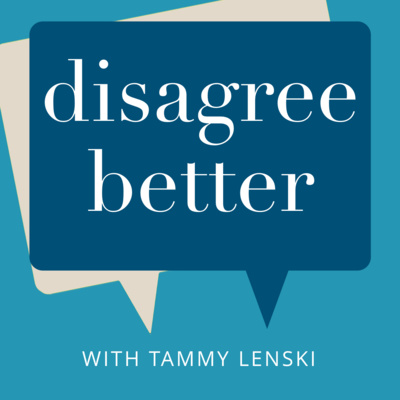 Disagree betterOn the importance of knowing what really mattersThey say that if we see a pothole on the road in front of us and we focus on it, we will inadvertently steer right toward it. To avoid the pothole, the trick is to broaden our view and focus on where we actually want to go. This kind of deliberate focusing of our attention on the kind of future we want is essential in conflict resolution too, as this negotiation story from U.S. President Jimmy Carter reminds us.
Find the transcript with links here.
To receive transcripts of new episodes automatically, subscribe at...2020-08-1304 min
Disagree betterOn the importance of knowing what really mattersThey say that if we see a pothole on the road in front of us and we focus on it, we will inadvertently steer right toward it. To avoid the pothole, the trick is to broaden our view and focus on where we actually want to go. This kind of deliberate focusing of our attention on the kind of future we want is essential in conflict resolution too, as this negotiation story from U.S. President Jimmy Carter reminds us.
Find the transcript with links here.
To receive transcripts of new episodes automatically, subscribe at...2020-08-1304 min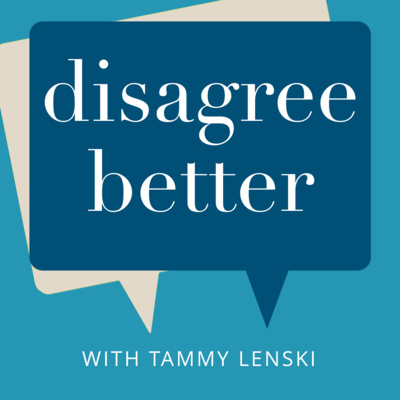 Disagree betterBehind every criticism is a wishIt’s possible to turn criticism into a positive conversation, whether you’re the recipient of someone’s criticism or you’ve gotten feedback about being too critical. The key is to find the hidden message the criticism is trying to convey. Here’s how to do that.
Find the transcript with links here.
To receive transcripts of new episodes automatically, subscribe at tammylenski.com/subscribe/.2020-07-2810 min
Disagree betterBehind every criticism is a wishIt’s possible to turn criticism into a positive conversation, whether you’re the recipient of someone’s criticism or you’ve gotten feedback about being too critical. The key is to find the hidden message the criticism is trying to convey. Here’s how to do that.
Find the transcript with links here.
To receive transcripts of new episodes automatically, subscribe at tammylenski.com/subscribe/.2020-07-2810 min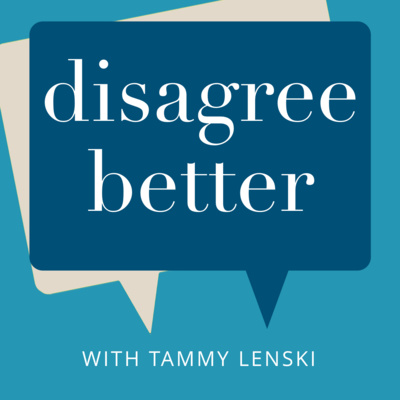 Disagree betterBreak down listening barriers with these 4 questionsConflict is very good at creating listening barriers. When they’re talking we’re only half listening while we wait to talk, formulate our comeback, struggle to keep calm, and fall into other habits that get in the way of good listening. If you’re in a position to help someone come back into good listening, try these four questions to prompt the return (you can use them with yourself, too).
Find the transcript with links here.
To receive transcripts of new episodes automatically, subscribe at tammylenski.com/subscribe/.2020-06-2607 min
Disagree betterBreak down listening barriers with these 4 questionsConflict is very good at creating listening barriers. When they’re talking we’re only half listening while we wait to talk, formulate our comeback, struggle to keep calm, and fall into other habits that get in the way of good listening. If you’re in a position to help someone come back into good listening, try these four questions to prompt the return (you can use them with yourself, too).
Find the transcript with links here.
To receive transcripts of new episodes automatically, subscribe at tammylenski.com/subscribe/.2020-06-2607 min Disagree betterAn uncomplicated way to reduce the pitfalls of emotional memories during conflict resolutionWhen negative experiences leave someone with strong emotional memories, discussing those experiences during conflict resolution can be tricky territory. The solution isn’t to suppress discussion of negative events or ask people to set aside their strong emotions. Recent research offers insight into a simple way to navigate emotional memories in a way that reduces the negative side effects.
Find the transcript with links here.
To receive transcripts of new episodes automatically, subscribe at tammylenski.com/subscribe/.2020-06-0209 min
Disagree betterAn uncomplicated way to reduce the pitfalls of emotional memories during conflict resolutionWhen negative experiences leave someone with strong emotional memories, discussing those experiences during conflict resolution can be tricky territory. The solution isn’t to suppress discussion of negative events or ask people to set aside their strong emotions. Recent research offers insight into a simple way to navigate emotional memories in a way that reduces the negative side effects.
Find the transcript with links here.
To receive transcripts of new episodes automatically, subscribe at tammylenski.com/subscribe/.2020-06-0209 min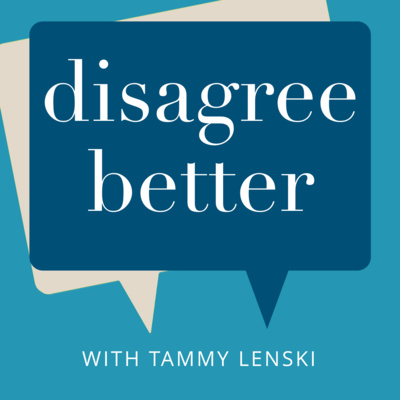 Disagree betterFive uncomplicated ways couples can turn arguments into discussionsThere’s a new book out, Living Together, Separating, Divorcing: Surviving During a Pandemic, released yesterday on Amazon. The brainchild of Michael Lang and Peter Nicholson, the book features conflict resolution advice for couples and families from over 70 mediators and related professionals from 10 countries. Here’s my contribution and more details about the collective wisdom in the book.
Find the transcript with links here.
To receive transcripts of new episodes automatically, subscribe at tammylenski.com/subscribe/.2020-05-1306 min
Disagree betterFive uncomplicated ways couples can turn arguments into discussionsThere’s a new book out, Living Together, Separating, Divorcing: Surviving During a Pandemic, released yesterday on Amazon. The brainchild of Michael Lang and Peter Nicholson, the book features conflict resolution advice for couples and families from over 70 mediators and related professionals from 10 countries. Here’s my contribution and more details about the collective wisdom in the book.
Find the transcript with links here.
To receive transcripts of new episodes automatically, subscribe at tammylenski.com/subscribe/.2020-05-1306 min Disagree better3 reasons they won’t change their behavior–and what to do about itWhen someone won’t change their behavior, we may try to persuade them by fiat or information. Both approaches can work, but too often, they fail. Here are three reasons force and facts fail to persuade and what to try instead.
Find the transcript with links here.
To receive transcripts of new episodes automatically, subscribe at tammylenski.com/subscribe/.2020-04-2111 min
Disagree better3 reasons they won’t change their behavior–and what to do about itWhen someone won’t change their behavior, we may try to persuade them by fiat or information. Both approaches can work, but too often, they fail. Here are three reasons force and facts fail to persuade and what to try instead.
Find the transcript with links here.
To receive transcripts of new episodes automatically, subscribe at tammylenski.com/subscribe/.2020-04-2111 min Disagree better5 ways to deal proactively with conflict while working from home during the coronavirus outbreakLife looks different for most of us than it did a few weeks ago. The dramatic changes in the rhythm of our lives, the economic uncertainty, and the anxiety about health and safety are breeding grounds for stress and conflict. Here are a few things you can do to get ahead of conflict while working from home during the coronavirus pandemic.
Find the transcript with links here.
To receive transcripts of new episodes automatically, subscribe at tammylenski.com/subscribe/.2020-03-1907 min
Disagree better5 ways to deal proactively with conflict while working from home during the coronavirus outbreakLife looks different for most of us than it did a few weeks ago. The dramatic changes in the rhythm of our lives, the economic uncertainty, and the anxiety about health and safety are breeding grounds for stress and conflict. Here are a few things you can do to get ahead of conflict while working from home during the coronavirus pandemic.
Find the transcript with links here.
To receive transcripts of new episodes automatically, subscribe at tammylenski.com/subscribe/.2020-03-1907 min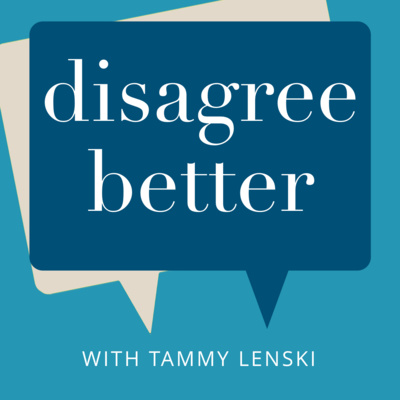 Disagree betterUpstream conflict resolutionBy the time we decide to get help with a conflict, or by the time we’re called in to help others, the conflict has often become chronic or acute. Chronic conflict and acute conflict are harder to resolve and more likely to damage personal and workplace relationships. Resolution of chronic or acute conflict is reactive. Upstream conflict resolution is proactive and mitigates acute and chronic conflict’s side effects.
Find the transcript with links here.
To receive transcripts of new episodes automatically, subscribe at tammylenski.com/subscribe/.2020-02-1709 min
Disagree betterUpstream conflict resolutionBy the time we decide to get help with a conflict, or by the time we’re called in to help others, the conflict has often become chronic or acute. Chronic conflict and acute conflict are harder to resolve and more likely to damage personal and workplace relationships. Resolution of chronic or acute conflict is reactive. Upstream conflict resolution is proactive and mitigates acute and chronic conflict’s side effects.
Find the transcript with links here.
To receive transcripts of new episodes automatically, subscribe at tammylenski.com/subscribe/.2020-02-1709 min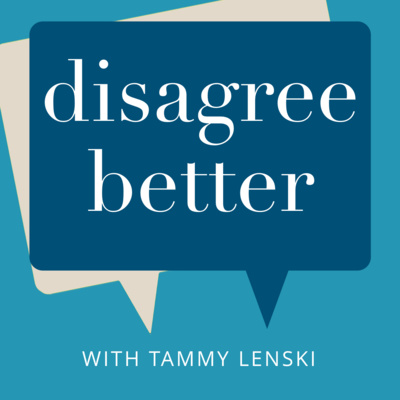 Disagree betterHow to stop ruminating at night (other times too)Rumination, or dwelling on anger or hurt after a conflict, isn’t a helpful habit. To stop ruminating at night or any other time you find yourself dwelling on your distress, here’s a thought exercise to help you stop the endless and potentially harmful loop.
Find the transcript with links here.
To receive transcripts of new episodes automatically, subscribe at tammylenski.com/subscribe/.2020-01-2908 min
Disagree betterHow to stop ruminating at night (other times too)Rumination, or dwelling on anger or hurt after a conflict, isn’t a helpful habit. To stop ruminating at night or any other time you find yourself dwelling on your distress, here’s a thought exercise to help you stop the endless and potentially harmful loop.
Find the transcript with links here.
To receive transcripts of new episodes automatically, subscribe at tammylenski.com/subscribe/.2020-01-2908 min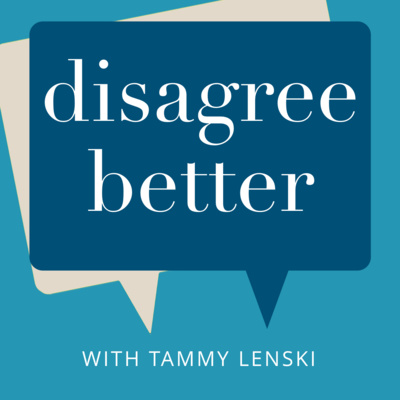 Disagree betterSpark a shift in perspective with this questionIn the midst of conflict it’s hard to get a fresh perspective about the situation or the other person. This simple question is excellent for tempering our certainty, engaging our curiosity, and sparking a shift in perspective when we need it most.
Find the transcript with links here.
To receive transcripts of new episodes automatically, subscribe at tammylenski.com/subscribe/.2019-12-1905 min
Disagree betterSpark a shift in perspective with this questionIn the midst of conflict it’s hard to get a fresh perspective about the situation or the other person. This simple question is excellent for tempering our certainty, engaging our curiosity, and sparking a shift in perspective when we need it most.
Find the transcript with links here.
To receive transcripts of new episodes automatically, subscribe at tammylenski.com/subscribe/.2019-12-1905 min Disagree betterHow to disagree betterSound decisions, healthy team dynamics, and resilient personal and professional relationships don’t require or even particularly benefit from an absence of conflict. When there’s conflict and tension, the goal isn’t to abolish it, but to navigate it in ways that prevent damage and inspire deeper consideration of solutions. The goal is to disagree better.
Find the transcript with links here.
To receive transcripts of new episodes automatically, subscribe at tammylenski.com/subscribe/.2019-11-2017 min
Disagree betterHow to disagree betterSound decisions, healthy team dynamics, and resilient personal and professional relationships don’t require or even particularly benefit from an absence of conflict. When there’s conflict and tension, the goal isn’t to abolish it, but to navigate it in ways that prevent damage and inspire deeper consideration of solutions. The goal is to disagree better.
Find the transcript with links here.
To receive transcripts of new episodes automatically, subscribe at tammylenski.com/subscribe/.2019-11-2017 min Disagree betterChoosing the right conflict resolution toolsWe use tools to do something more effectively and efficiently. But just like physical tools, ill-chosen conflict resolution tools will not yield the results we need. Here are three questions to help choose and use the right conflict resolution tools for the moment.
Find the transcript with links here.
To receive transcripts of new episodes automatically, subscribe at tammylenski.com/subscribe/.2019-10-0209 min
Disagree betterChoosing the right conflict resolution toolsWe use tools to do something more effectively and efficiently. But just like physical tools, ill-chosen conflict resolution tools will not yield the results we need. Here are three questions to help choose and use the right conflict resolution tools for the moment.
Find the transcript with links here.
To receive transcripts of new episodes automatically, subscribe at tammylenski.com/subscribe/.2019-10-0209 min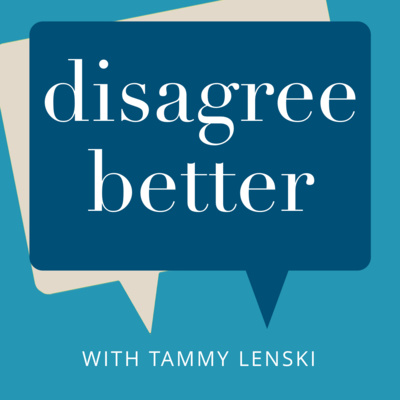 Disagree betterEvery conflict contains a bid to be seenOne reason disagreements turn into conflict and ongoing tension is our failure to see — or acknowledge that we see — the other person in the way they most deeply wish to be seen in the world. One way to disagree better is to respond to their bid to be seen, not with miserly reticence, but with generosity of spirit.
Find the transcript with links here.
To receive transcripts of new episodes automatically, subscribe at tammylenski.com/subscribe/.2019-09-0308 min
Disagree betterEvery conflict contains a bid to be seenOne reason disagreements turn into conflict and ongoing tension is our failure to see — or acknowledge that we see — the other person in the way they most deeply wish to be seen in the world. One way to disagree better is to respond to their bid to be seen, not with miserly reticence, but with generosity of spirit.
Find the transcript with links here.
To receive transcripts of new episodes automatically, subscribe at tammylenski.com/subscribe/.2019-09-0308 min Disagree betterHow to influence the way people act during conflictIf you believe someone is aggressive, could they behave more aggressively with you than with others? If someone believes you are a hostile person, are you likely to act more hostile when you interact with them? It’s called behavioral confirmation and if you’re interested in your own or others’ conflict behavior, it’s worth understanding.
Find the transcript with links here.
To receive transcripts of new episodes automatically, subscribe at tammylenski.com/subscribe/.2019-07-2308 min
Disagree betterHow to influence the way people act during conflictIf you believe someone is aggressive, could they behave more aggressively with you than with others? If someone believes you are a hostile person, are you likely to act more hostile when you interact with them? It’s called behavioral confirmation and if you’re interested in your own or others’ conflict behavior, it’s worth understanding.
Find the transcript with links here.
To receive transcripts of new episodes automatically, subscribe at tammylenski.com/subscribe/.2019-07-2308 min Disagree betterA way to turn anger into curiosityOnly people we love and care deeply about can make us so angry we want to blow a gasket, says famed Star Trek actor George Takei. When someone or something we care deeply about sparks big anger, here’s a way to turn anger into curiosity and use it positively.
Find the transcript with links here.
To receive transcripts of new episodes automatically, subscribe at tammylenski.com/subscribe/.2019-06-0405 min
Disagree betterA way to turn anger into curiosityOnly people we love and care deeply about can make us so angry we want to blow a gasket, says famed Star Trek actor George Takei. When someone or something we care deeply about sparks big anger, here’s a way to turn anger into curiosity and use it positively.
Find the transcript with links here.
To receive transcripts of new episodes automatically, subscribe at tammylenski.com/subscribe/.2019-06-0405 min Disagree betterStart with a small yesThe outset of a difficult conversation often feels like a back-and-forth trading of position and perspective with little common ground. Here’s how to use the psychology of agreement to begin shifting that kind of positional debate to collaborative problem solving.
Find the transcript with links here.
To receive transcripts of new episodes automatically, subscribe at tammylenski.com/subscribe/.2019-05-1007 min
Disagree betterStart with a small yesThe outset of a difficult conversation often feels like a back-and-forth trading of position and perspective with little common ground. Here’s how to use the psychology of agreement to begin shifting that kind of positional debate to collaborative problem solving.
Find the transcript with links here.
To receive transcripts of new episodes automatically, subscribe at tammylenski.com/subscribe/.2019-05-1007 min Disagree betterSlow down and be the BedouinIt feels productive to toss out ideas for a solution and demonstrate how much we want to help. But it’s usually unproductive if we haven’t done something essential first: Make sure we understand the problem from their frame of reference.
Find the transcript with links here.
To receive transcripts of new episodes automatically, subscribe at tammylenski.com/subscribe/.2019-04-2303 min
Disagree betterSlow down and be the BedouinIt feels productive to toss out ideas for a solution and demonstrate how much we want to help. But it’s usually unproductive if we haven’t done something essential first: Make sure we understand the problem from their frame of reference.
Find the transcript with links here.
To receive transcripts of new episodes automatically, subscribe at tammylenski.com/subscribe/.2019-04-2303 min Disagree betterDo the next right thingWhen we’re overwhelmed by a difficult conversation, one reason can be that we’re too focused on the horizon and not focused enough on the very next step. A very helpful mindset in moments like this is to “do the next right thing.”
Find the transcript with links here.
To receive transcripts of new episodes automatically, subscribe at tammylenski.com/subscribe/.2019-04-0905 min
Disagree betterDo the next right thingWhen we’re overwhelmed by a difficult conversation, one reason can be that we’re too focused on the horizon and not focused enough on the very next step. A very helpful mindset in moments like this is to “do the next right thing.”
Find the transcript with links here.
To receive transcripts of new episodes automatically, subscribe at tammylenski.com/subscribe/.2019-04-0905 min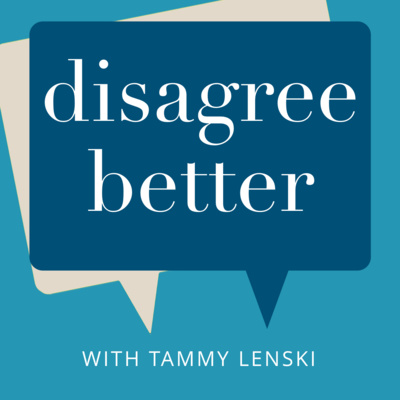 Disagree betterHow to politely stop long-winded talkersWhen we listen well, sometimes others hog air time and just keep talking. It’s an inadvertent, and often unwelcome, side effect of good listening. Here’s a way I like to handle long-winded talkers that’s both effective and kind.
Find the transcript with links here.
To receive transcripts of new episodes automatically, subscribe at tammylenski.com/subscribe/.2019-03-2604 min
Disagree betterHow to politely stop long-winded talkersWhen we listen well, sometimes others hog air time and just keep talking. It’s an inadvertent, and often unwelcome, side effect of good listening. Here’s a way I like to handle long-winded talkers that’s both effective and kind.
Find the transcript with links here.
To receive transcripts of new episodes automatically, subscribe at tammylenski.com/subscribe/.2019-03-2604 min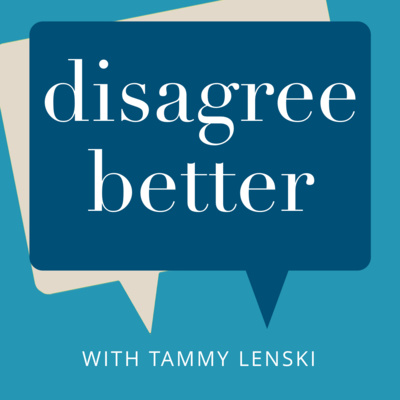 Disagree betterAvoid this common blunder when confronting difficult behaviorWhen confronting difficult behavior, we typically focus on what we want the other person to stop doing. Sometimes this works. But too often, we create a “behavior vacuum” with this approach, making it harder for them to stop the difficult behavior. Here’s how to avoid this common misstep.
Find the transcript with links here.
To receive transcripts of new episodes automatically, subscribe at tammylenski.com/subscribe/.2019-03-1308 min
Disagree betterAvoid this common blunder when confronting difficult behaviorWhen confronting difficult behavior, we typically focus on what we want the other person to stop doing. Sometimes this works. But too often, we create a “behavior vacuum” with this approach, making it harder for them to stop the difficult behavior. Here’s how to avoid this common misstep.
Find the transcript with links here.
To receive transcripts of new episodes automatically, subscribe at tammylenski.com/subscribe/.2019-03-1308 min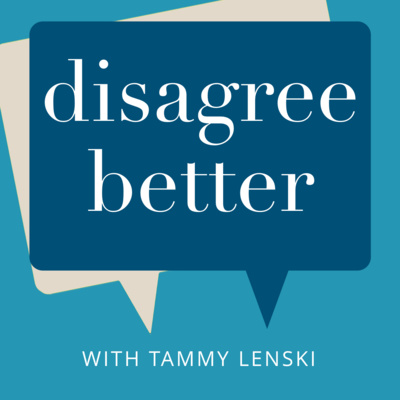 Disagree betterControl emotions better by labeling themWhen we want to control emotions better in the midst of a difficult conversation, we may try to ignore the unwelcome emotion or try the opposite, indulge it. These approaches don’t work very well in the face of incapacitating emotions. But something else does: Give the emotion a name.
Find the transcript with links here.
To receive transcripts of new episodes automatically, subscribe at tammylenski.com/subscribe/.2019-02-2707 min
Disagree betterControl emotions better by labeling themWhen we want to control emotions better in the midst of a difficult conversation, we may try to ignore the unwelcome emotion or try the opposite, indulge it. These approaches don’t work very well in the face of incapacitating emotions. But something else does: Give the emotion a name.
Find the transcript with links here.
To receive transcripts of new episodes automatically, subscribe at tammylenski.com/subscribe/.2019-02-2707 min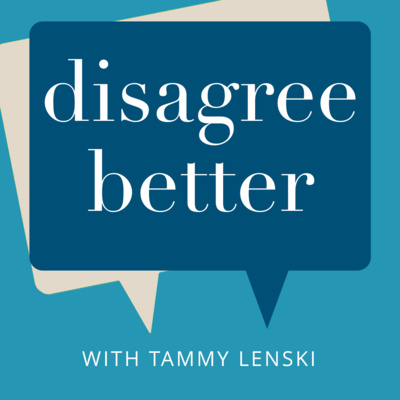 Disagree betterBlame vs contribution (and how to make the shift adroitly)Blame vs contribution — the differences are straightforward to grasp intellectually, yet sometimes tricky to employ effectively in conflict situations. Here are a few ways to shift a conversation from blame to contribution without appearing to blame the victim.
Find the transcript with links here.
To receive transcripts of new episodes automatically, subscribe at tammylenski.com/subscribe/.2019-02-1309 min
Disagree betterBlame vs contribution (and how to make the shift adroitly)Blame vs contribution — the differences are straightforward to grasp intellectually, yet sometimes tricky to employ effectively in conflict situations. Here are a few ways to shift a conversation from blame to contribution without appearing to blame the victim.
Find the transcript with links here.
To receive transcripts of new episodes automatically, subscribe at tammylenski.com/subscribe/.2019-02-1309 min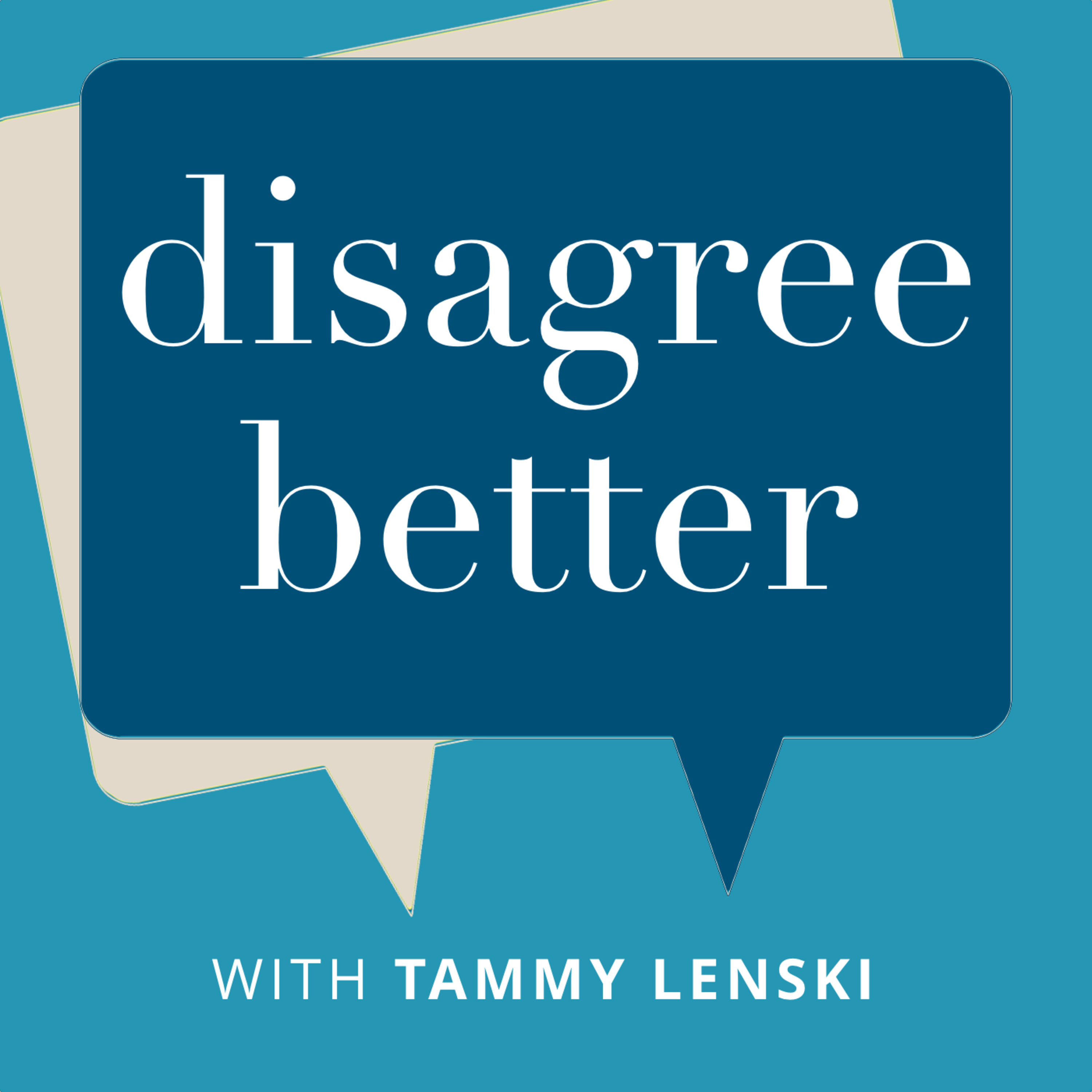 Disagree betterA lesson in compassion and understanding from a most annoying womanWhen we say we want to understand someone, but then view them through our own judgmentalism, we’re not being honest with ourselves. Compassion and understanding go hand in hand — when we let them.
Find the transcript with links here.
To receive transcripts of new episodes automatically, subscribe at tammylenski.com/subscribe/.2019-01-2905 min
Disagree betterA lesson in compassion and understanding from a most annoying womanWhen we say we want to understand someone, but then view them through our own judgmentalism, we’re not being honest with ourselves. Compassion and understanding go hand in hand — when we let them.
Find the transcript with links here.
To receive transcripts of new episodes automatically, subscribe at tammylenski.com/subscribe/.2019-01-2905 min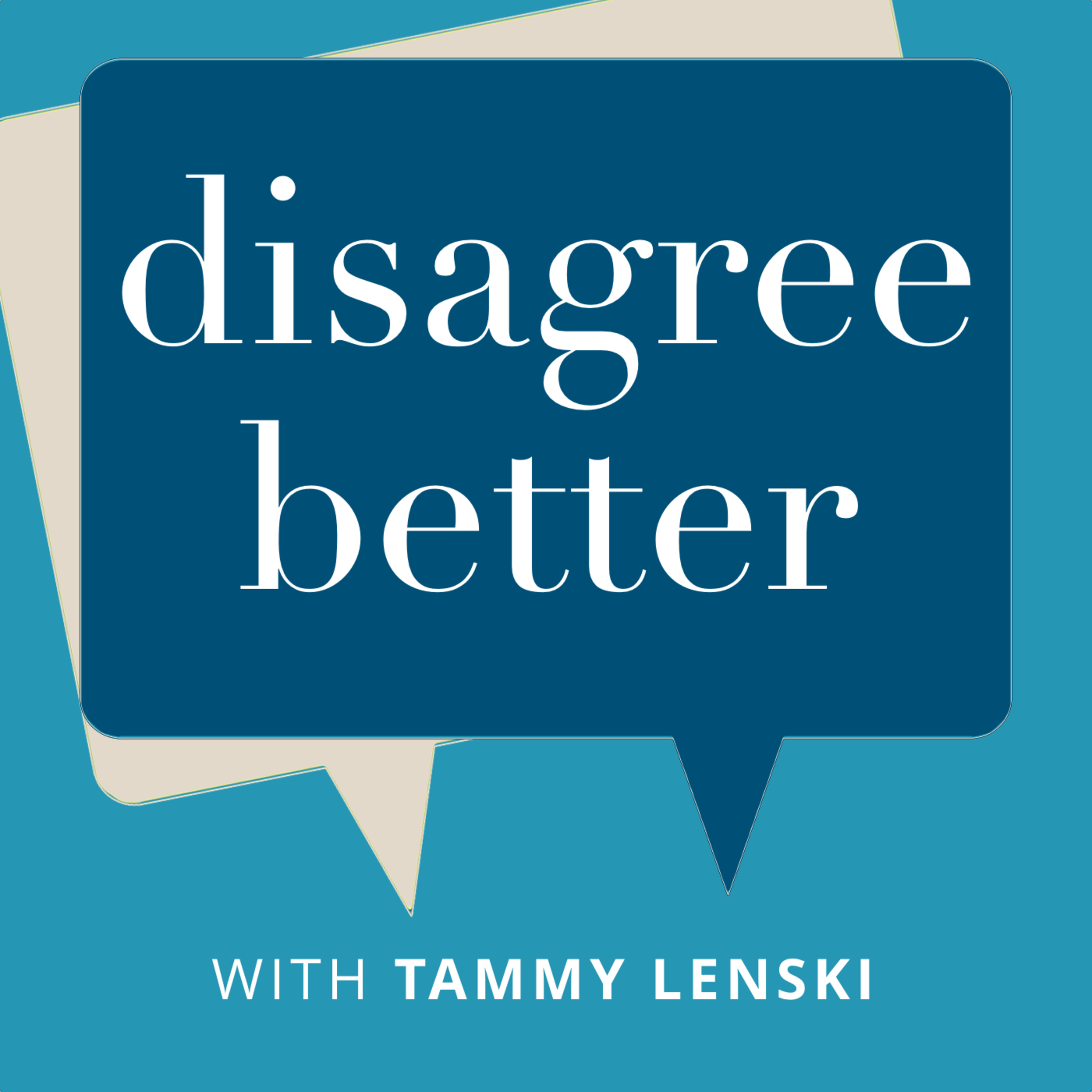 Disagree betterFlip the problem to illuminate hidden solutionsThe way we approach problem solving influences the solutions we can see — and are willing to see. When problem solving gets stuck, sometimes the best way to get unstuck isn’t to keep searching for better options or downgrade our expectations, but to flip the problem we’re trying to solve.
Find the transcript with links here.
To receive transcripts of new episodes automatically, subscribe at tammylenski.com/subscribe/.2019-01-1608 min
Disagree betterFlip the problem to illuminate hidden solutionsThe way we approach problem solving influences the solutions we can see — and are willing to see. When problem solving gets stuck, sometimes the best way to get unstuck isn’t to keep searching for better options or downgrade our expectations, but to flip the problem we’re trying to solve.
Find the transcript with links here.
To receive transcripts of new episodes automatically, subscribe at tammylenski.com/subscribe/.2019-01-1608 min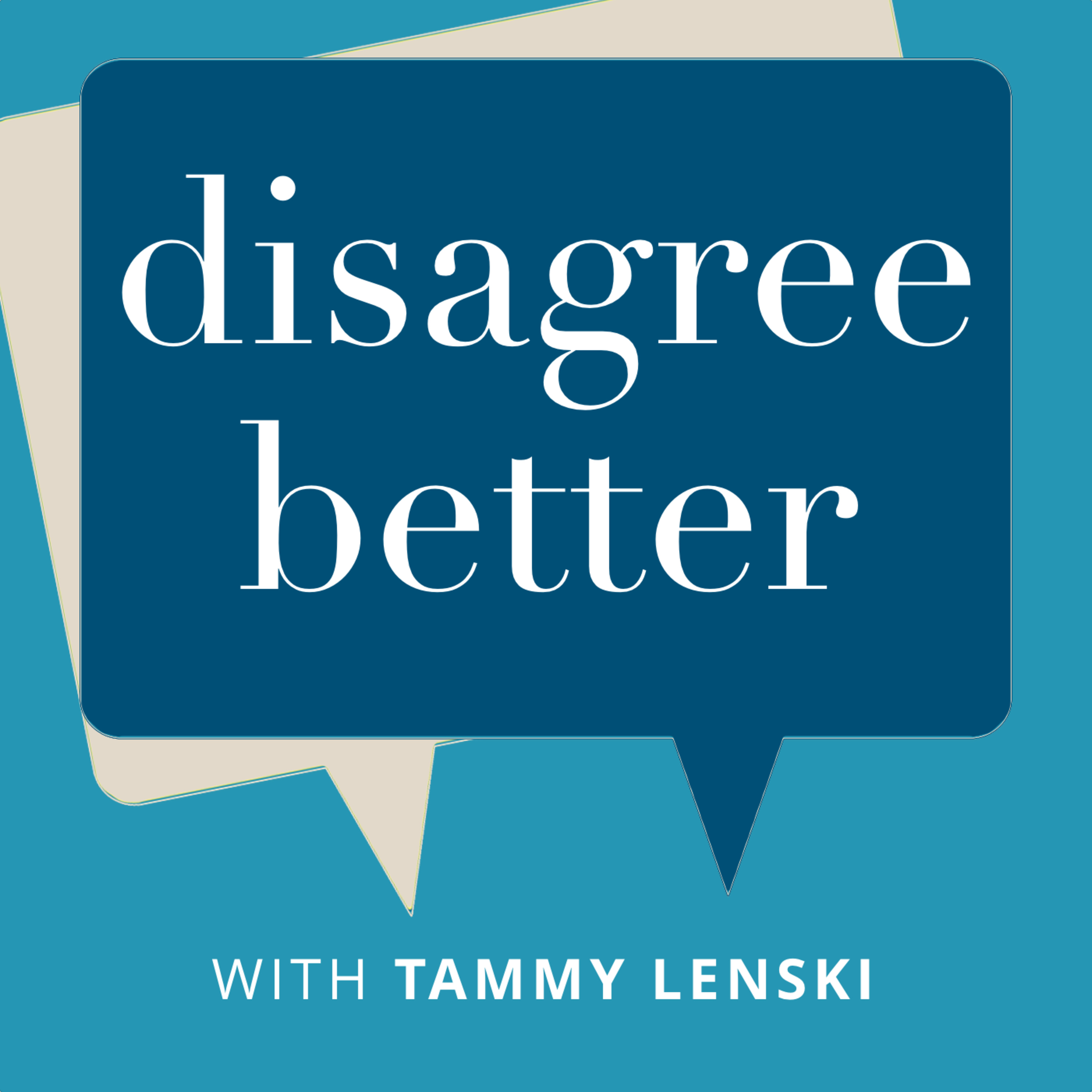 Disagree better4 handy principles for deciding when you can’t agreeWhen you can’t agree even with your best effort, having fallback criteria can break the agreement logjam and allow you get on with other things.
Find the transcript with links here.
To receive transcripts of new episodes automatically, subscribe at tammylenski.com/subscribe/.2018-11-2706 min
Disagree better4 handy principles for deciding when you can’t agreeWhen you can’t agree even with your best effort, having fallback criteria can break the agreement logjam and allow you get on with other things.
Find the transcript with links here.
To receive transcripts of new episodes automatically, subscribe at tammylenski.com/subscribe/.2018-11-2706 min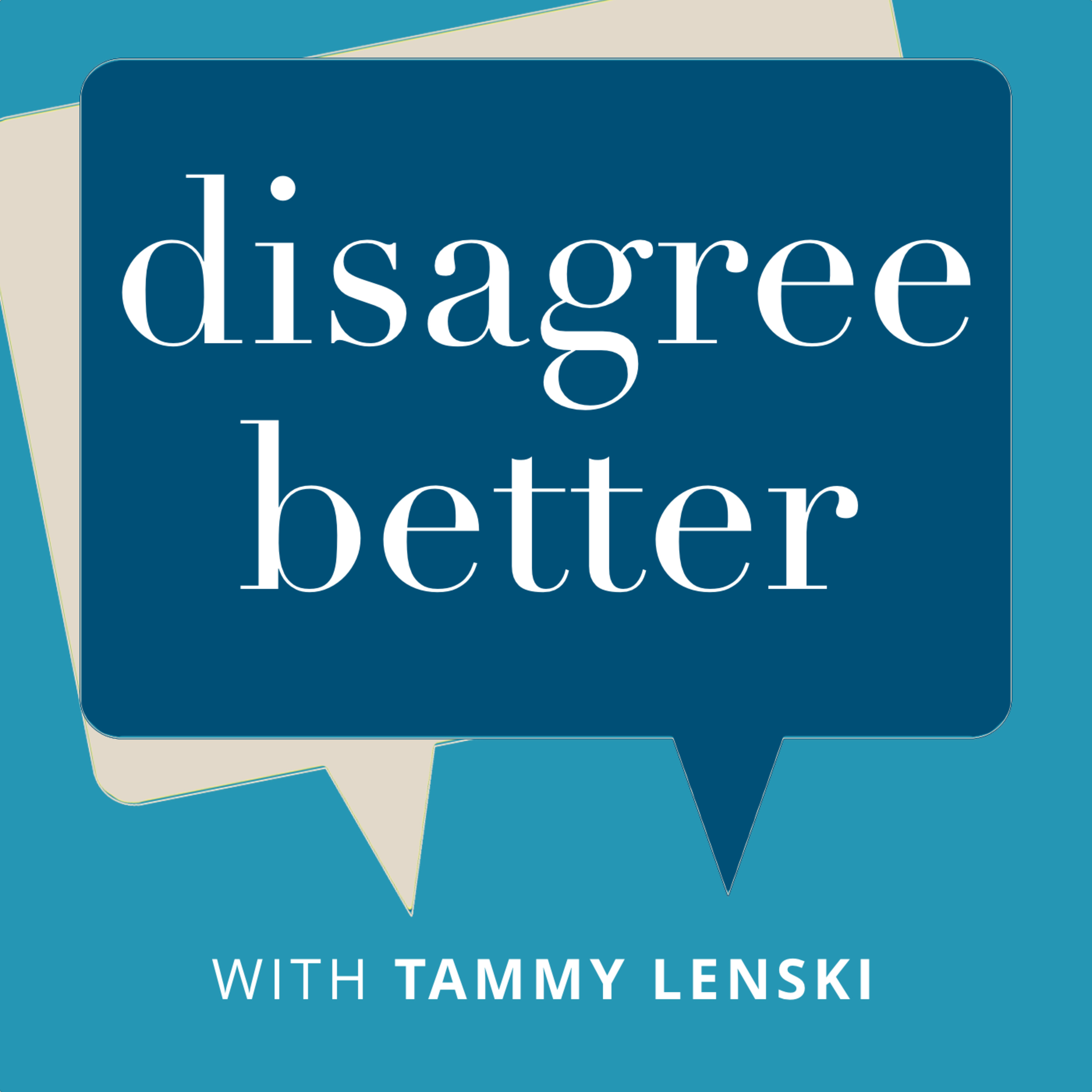 Disagree betterIs the Einstellung effect interfering with your problem solving?The Einstellung effect is a cognitive trap that prevents us from seeing better or simpler solutions to problems we’re trying to solve. Here’s how to recognize it and reduce its effect.
Find the transcript with links here.
To receive transcripts of new episodes automatically, subscribe at tammylenski.com/subscribe/.2018-11-1405 min
Disagree betterIs the Einstellung effect interfering with your problem solving?The Einstellung effect is a cognitive trap that prevents us from seeing better or simpler solutions to problems we’re trying to solve. Here’s how to recognize it and reduce its effect.
Find the transcript with links here.
To receive transcripts of new episodes automatically, subscribe at tammylenski.com/subscribe/.2018-11-1405 min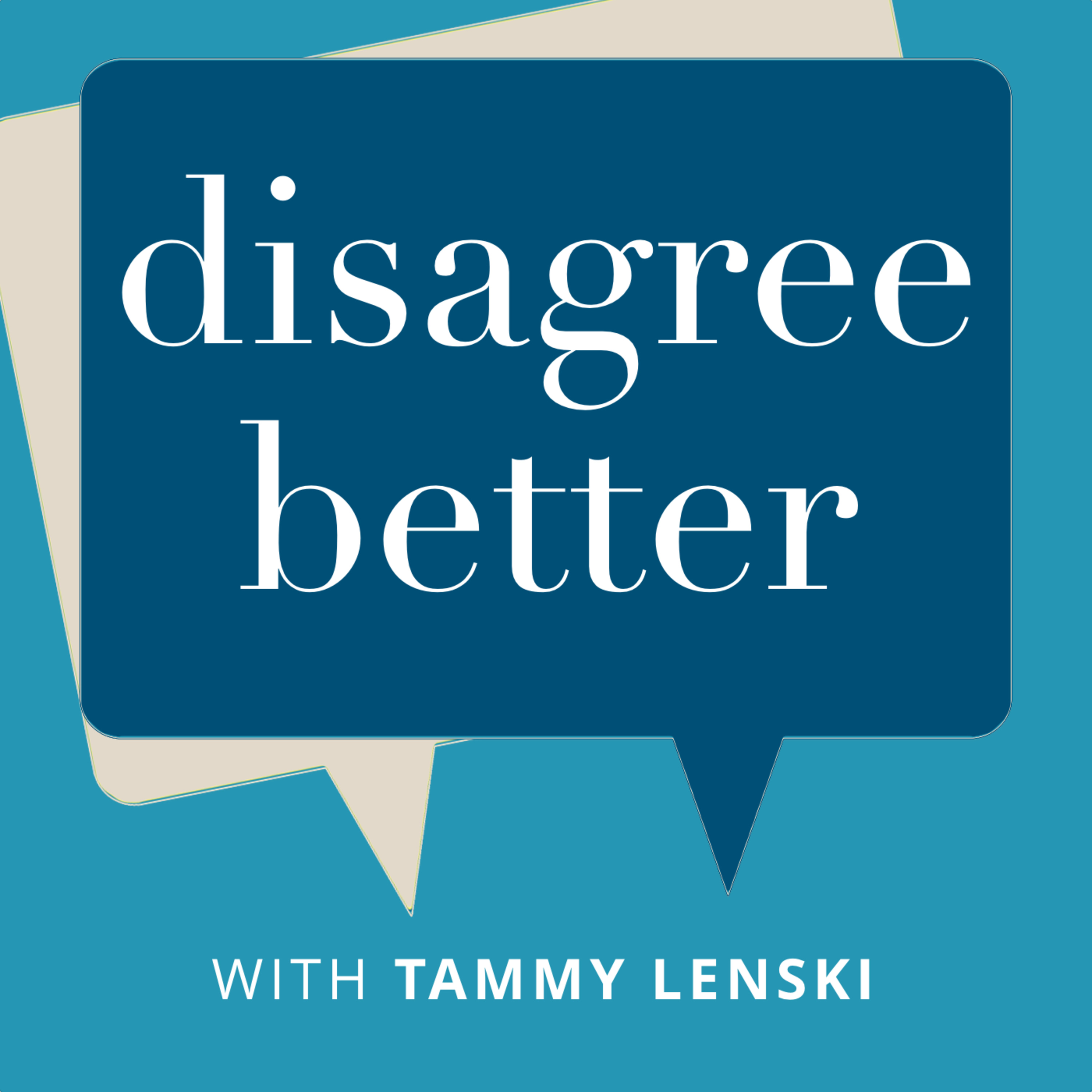 Disagree better5 bad listening habits and how to break themConflict has a way of magnifying our bad listening habits. I frequently see the following listening habits get in the way of constructive and collaborative problem-solving during conflict and thought I’d flag them for attention.
Find the transcript with links here.
To receive transcripts of new episodes automatically, subscribe at tammylenski.com/subscribe/.2018-10-3008 min
Disagree better5 bad listening habits and how to break themConflict has a way of magnifying our bad listening habits. I frequently see the following listening habits get in the way of constructive and collaborative problem-solving during conflict and thought I’d flag them for attention.
Find the transcript with links here.
To receive transcripts of new episodes automatically, subscribe at tammylenski.com/subscribe/.2018-10-3008 min Disagree betterDoubt your conflict storyWhen we get into a conflict with someone, it’s natural to replay our experience of the conflict, both in our minds and as we tell others about it. Over time, this replay can begin to feel like The Truth About What Happened. But it isn’t.
Find the transcript with links here.
To receive transcripts of new episodes automatically, subscribe at tammylenski.com/subscribe/.2018-10-1605 min
Disagree betterDoubt your conflict storyWhen we get into a conflict with someone, it’s natural to replay our experience of the conflict, both in our minds and as we tell others about it. Over time, this replay can begin to feel like The Truth About What Happened. But it isn’t.
Find the transcript with links here.
To receive transcripts of new episodes automatically, subscribe at tammylenski.com/subscribe/.2018-10-1605 min Disagree betterThe type of problem that makes conflict resolution harderGravity problems make conflict resolution more difficult because they sidetrack us from actionable problems. Here’s how to recognize gravity problems when you see them, why they’re troublesome, and how to prevent them from hijacking resolution.
Find the transcript with links here.
To receive transcripts of new episodes automatically, subscribe at tammylenski.com/subscribe/.r2018-10-0209 min
Disagree betterThe type of problem that makes conflict resolution harderGravity problems make conflict resolution more difficult because they sidetrack us from actionable problems. Here’s how to recognize gravity problems when you see them, why they’re troublesome, and how to prevent them from hijacking resolution.
Find the transcript with links here.
To receive transcripts of new episodes automatically, subscribe at tammylenski.com/subscribe/.r2018-10-0209 min Disagree betterA visualization for letting go of things you can’t changeThere are some problems and squabbles that aren’t worth our effort to pursue. Maybe we’re never going to see that person again, or it’s a small enough problem that we know we won’t care about it in a few days, weeks, or months. If your mind keeps chewing on little problems like these, try this brief visualization for letting them go.
Find the transcript with links here.
To receive transcripts of new episodes automatically, subscribe at tammylenski.com/subscribe/.2018-09-1804 min
Disagree betterA visualization for letting go of things you can’t changeThere are some problems and squabbles that aren’t worth our effort to pursue. Maybe we’re never going to see that person again, or it’s a small enough problem that we know we won’t care about it in a few days, weeks, or months. If your mind keeps chewing on little problems like these, try this brief visualization for letting them go.
Find the transcript with links here.
To receive transcripts of new episodes automatically, subscribe at tammylenski.com/subscribe/.2018-09-1804 min Disagree better3 ways to turn adversaries into problem-solving partnersMost people don’t want to be wrangled into doing something you want but they don’t. Here are three ways to turn them into your problem-solving partners and overcome resistance.
Find the transcript with links here.
To receive transcripts of new episodes automatically, subscribe at tammylenski.com/subscribe/.2018-09-0508 min
Disagree better3 ways to turn adversaries into problem-solving partnersMost people don’t want to be wrangled into doing something you want but they don’t. Here are three ways to turn them into your problem-solving partners and overcome resistance.
Find the transcript with links here.
To receive transcripts of new episodes automatically, subscribe at tammylenski.com/subscribe/.2018-09-0508 min Disagree betterHow to express a concern without making things worseWhen I ask clients why they let a problem go on for so long before addressing it, a common reply is, “I was afraid I’d create more conflict by raising it.” It’s an understandable fear. Here are some tried-and-true ways to raise an issue for discussion without making matters worse.
Find the transcript with links here.
To receive transcripts of new episodes automatically, subscribe at tammylenski.com/subscribe/.2018-08-0308 min
Disagree betterHow to express a concern without making things worseWhen I ask clients why they let a problem go on for so long before addressing it, a common reply is, “I was afraid I’d create more conflict by raising it.” It’s an understandable fear. Here are some tried-and-true ways to raise an issue for discussion without making matters worse.
Find the transcript with links here.
To receive transcripts of new episodes automatically, subscribe at tammylenski.com/subscribe/.2018-08-0308 min Disagree betterAsk yourself this kind of question when an argument rattles youWhen a difficult conversation rattles you, using a centering question can help you get your balance back. Here are favorite centering questions I share with my clients, along with guidelines for developing your own.
Find the transcript with links here.
To receive transcripts of new episodes automatically, subscribe at tammylenski.com/subscribe/.2018-07-0208 min
Disagree betterAsk yourself this kind of question when an argument rattles youWhen a difficult conversation rattles you, using a centering question can help you get your balance back. Here are favorite centering questions I share with my clients, along with guidelines for developing your own.
Find the transcript with links here.
To receive transcripts of new episodes automatically, subscribe at tammylenski.com/subscribe/.2018-07-0208 min Disagree betterFighting in a relationship: The gift of angerWhat we believe about anger has an impact on what happens during emotionally charged conflict. Relief from the suffering of conflict can come from them changing how they act on their anger, of course. And it can also come from us changing how we think about anger.
Find the transcript with links here.
To receive transcripts of new episodes automatically, subscribe at tammylenski.com/subscribe/.2018-05-0804 min
Disagree betterFighting in a relationship: The gift of angerWhat we believe about anger has an impact on what happens during emotionally charged conflict. Relief from the suffering of conflict can come from them changing how they act on their anger, of course. And it can also come from us changing how we think about anger.
Find the transcript with links here.
To receive transcripts of new episodes automatically, subscribe at tammylenski.com/subscribe/.2018-05-0804 min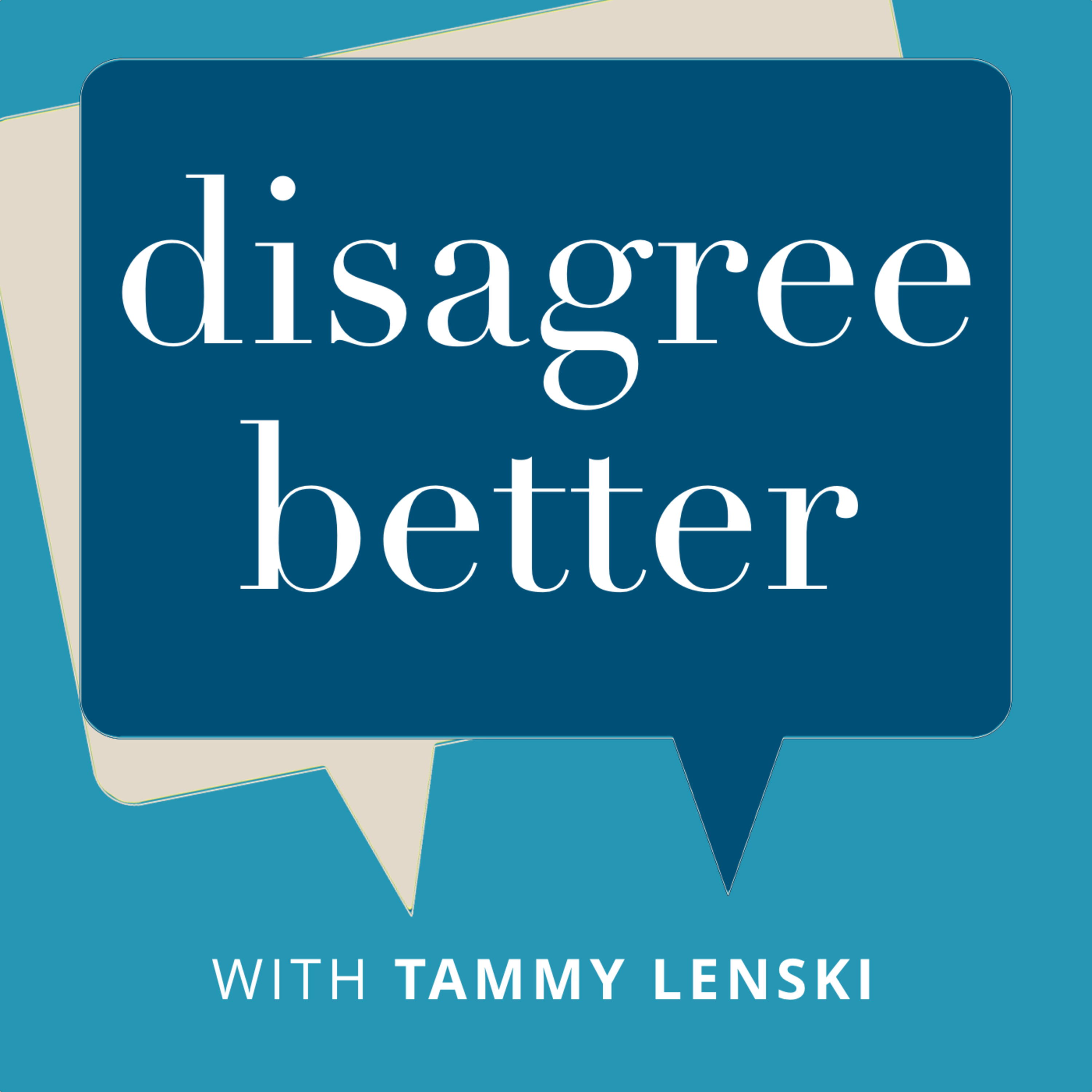 Disagree betterThis common (but faulty) reasoning leads to bad decisionsWe like to think of ourselves as rational beings, and yet we act irrationally in all sorts of ways. One way we act irrationally is with a type of faulty reasoning we use for decisions both large and small, influencing not just the agreements we reach, but also the process we use to reach those agreements.
Find the transcript with links here.
To receive transcripts of new episodes automatically, subscribe at tammylenski.com/subscribe/.2018-04-2410 min
Disagree betterThis common (but faulty) reasoning leads to bad decisionsWe like to think of ourselves as rational beings, and yet we act irrationally in all sorts of ways. One way we act irrationally is with a type of faulty reasoning we use for decisions both large and small, influencing not just the agreements we reach, but also the process we use to reach those agreements.
Find the transcript with links here.
To receive transcripts of new episodes automatically, subscribe at tammylenski.com/subscribe/.2018-04-2410 min Disagree better5 impactful questions for handling difficult momentsMost difficult conversations ebb and flow between good progress and difficult moments, those times it’s a challenge to access our best selves and skills. Here are five common difficult moments and five powerful questions to help you through them.
Find the transcript with links here.
To receive transcripts of new episodes automatically, subscribe at tammylenski.com/subscribe/.2018-04-1006 min
Disagree better5 impactful questions for handling difficult momentsMost difficult conversations ebb and flow between good progress and difficult moments, those times it’s a challenge to access our best selves and skills. Here are five common difficult moments and five powerful questions to help you through them.
Find the transcript with links here.
To receive transcripts of new episodes automatically, subscribe at tammylenski.com/subscribe/.2018-04-1006 min Disagree betterIs the overconfidence effect sabotaging your communication?The overconfidence effect is a natural bias toward believing that we’re better at something than we actually are. The overconfidence effect can distort belief in the accuracy of a strong memory, estimations of how long it will take to get things done, judgment about our intelligence compared to others, and even the reliability of eyewitness accounts. It can sabotage communication during conflict, too.
Find the transcript with links here.
To receive transcripts of new episodes automatically, subscribe at tammylenski.com/subscribe/.2018-03-2707 min
Disagree betterIs the overconfidence effect sabotaging your communication?The overconfidence effect is a natural bias toward believing that we’re better at something than we actually are. The overconfidence effect can distort belief in the accuracy of a strong memory, estimations of how long it will take to get things done, judgment about our intelligence compared to others, and even the reliability of eyewitness accounts. It can sabotage communication during conflict, too.
Find the transcript with links here.
To receive transcripts of new episodes automatically, subscribe at tammylenski.com/subscribe/.2018-03-2707 min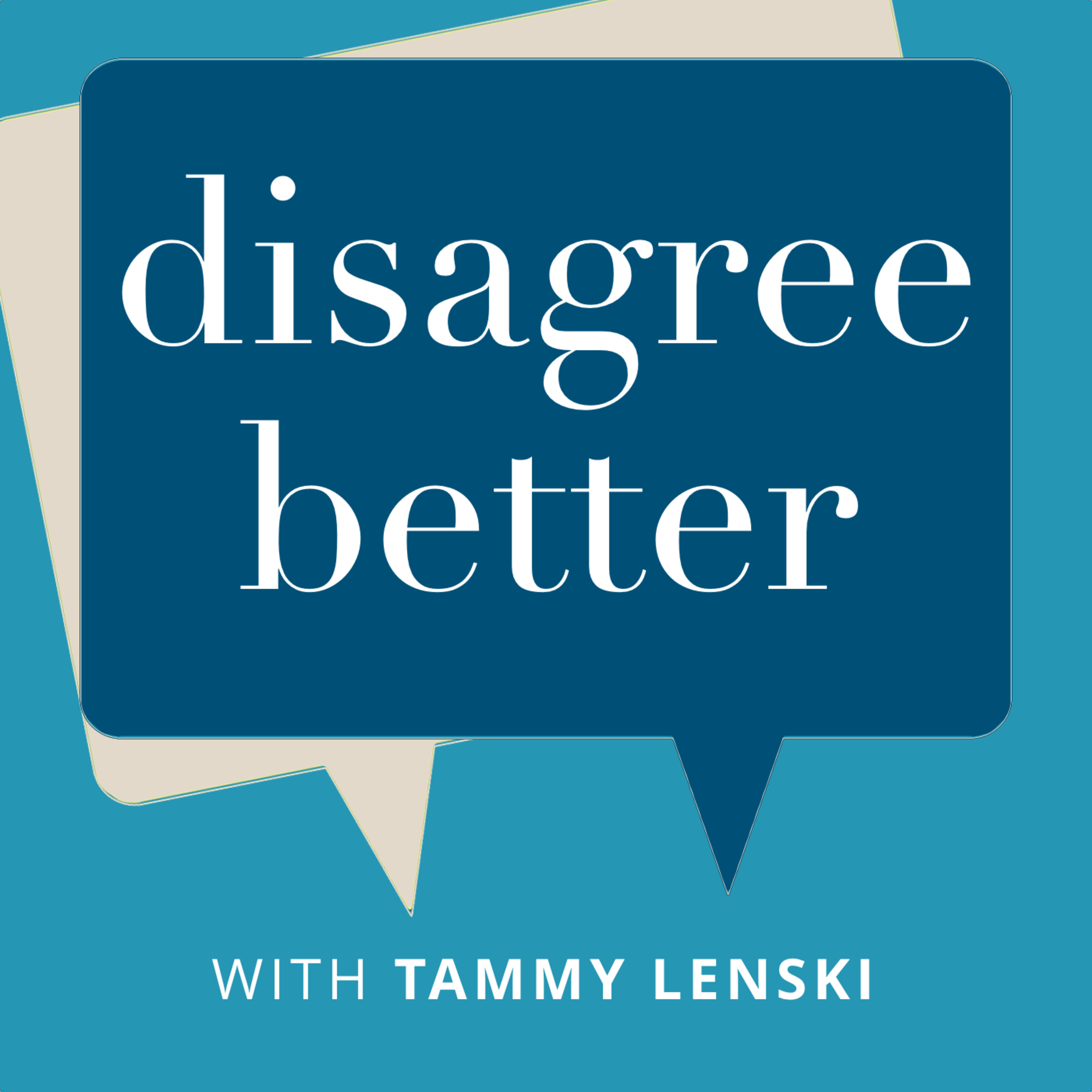 Disagree betterAn effortless way to discern others’ emotionsBeing able to accurately discern someone’s emotional state is an essential conflict resolution skill. But even with both good will and skill, we have a fair chance of guessing wrong. Recent research suggests that when it comes to accurately figuring out what someone else is feeling, there’s one thing we can do that boosts our ability to get it right.
Find the transcript with links here.
To receive transcripts of new episodes automatically, subscribe at tammylenski.com/subscribe/.2018-03-1306 min
Disagree betterAn effortless way to discern others’ emotionsBeing able to accurately discern someone’s emotional state is an essential conflict resolution skill. But even with both good will and skill, we have a fair chance of guessing wrong. Recent research suggests that when it comes to accurately figuring out what someone else is feeling, there’s one thing we can do that boosts our ability to get it right.
Find the transcript with links here.
To receive transcripts of new episodes automatically, subscribe at tammylenski.com/subscribe/.2018-03-1306 min Disagree betterHow to backpedal after saying the wrong thingWhen words come out of your mouth that you instantly regret, here are some ways to recover from your faux pas and minimize the impact of ill-chosen words.
Find the transcript with links here.
To receive transcripts of new episodes automatically, subscribe at tammylenski.com/subscribe/.2018-02-2704 min
Disagree betterHow to backpedal after saying the wrong thingWhen words come out of your mouth that you instantly regret, here are some ways to recover from your faux pas and minimize the impact of ill-chosen words.
Find the transcript with links here.
To receive transcripts of new episodes automatically, subscribe at tammylenski.com/subscribe/.2018-02-2704 min Disagree betterCan this key ingredient protect your marriage from relationship conflict?Couples can have big fights, frequent conflict, and even bicker all the time and still have healthy, fulfilling, and lasting relationships. How so? Recent research suggests that one factor in particular plays an important role in protecting a couple from the negative effects of relationship conflict: How well you think your partner “gets” you.
Find the transcript with links here.
To receive transcripts of new episodes automatically, subscribe at tammylenski.com/subscribe/.2018-02-1306 min
Disagree betterCan this key ingredient protect your marriage from relationship conflict?Couples can have big fights, frequent conflict, and even bicker all the time and still have healthy, fulfilling, and lasting relationships. How so? Recent research suggests that one factor in particular plays an important role in protecting a couple from the negative effects of relationship conflict: How well you think your partner “gets” you.
Find the transcript with links here.
To receive transcripts of new episodes automatically, subscribe at tammylenski.com/subscribe/.2018-02-1306 min Disagree betterThe communication method that makes disagreements worseFor almost two decades I’ve advised clients to avoid email and texting when tension grows in their important personal or business relationships. Is my advice still credible in an era so permeated by technology? A new study offers updated insight.
Find the transcript with links here.
To receive transcripts of new episodes automatically, subscribe at tammylenski.com/subscribe/.2018-01-3004 min
Disagree betterThe communication method that makes disagreements worseFor almost two decades I’ve advised clients to avoid email and texting when tension grows in their important personal or business relationships. Is my advice still credible in an era so permeated by technology? A new study offers updated insight.
Find the transcript with links here.
To receive transcripts of new episodes automatically, subscribe at tammylenski.com/subscribe/.2018-01-3004 min Disagree betterThe Picasso trick for better problem solvingWhen we become too wedded to our own solutions, conflict resolution conversations can get pretty stuck. Here’s a trick of the mind to help us stay flexible (even when we’re sure our solution is brilliant), courtesy of Pablo Picasso.
Find the transcript with links here.
To receive transcripts of new episodes automatically, subscribe at tammylenski.com/subscribe/.2018-01-0206 min
Disagree betterThe Picasso trick for better problem solvingWhen we become too wedded to our own solutions, conflict resolution conversations can get pretty stuck. Here’s a trick of the mind to help us stay flexible (even when we’re sure our solution is brilliant), courtesy of Pablo Picasso.
Find the transcript with links here.
To receive transcripts of new episodes automatically, subscribe at tammylenski.com/subscribe/.2018-01-0206 min Disagree betterWhen it seems trivial, pay close attentionWhen you’re tempted to dismiss someone’s concerns as trivial, or roll your eyes at the things people find to fight over, it’s time to sit up straight and pay attention. Because you’re missing something…and it’s worth your while to figure out what.
Find the transcript with links here.
To receive transcripts of new episodes automatically, subscribe at tammylenski.com/subscribe/.2017-12-1904 min
Disagree betterWhen it seems trivial, pay close attentionWhen you’re tempted to dismiss someone’s concerns as trivial, or roll your eyes at the things people find to fight over, it’s time to sit up straight and pay attention. Because you’re missing something…and it’s worth your while to figure out what.
Find the transcript with links here.
To receive transcripts of new episodes automatically, subscribe at tammylenski.com/subscribe/.2017-12-1904 min Disagree betterYou make me so angry!This classic piece of research offers insight into the way context may influence blame and anger.
Find the transcript with links here.
To receive transcripts of new episodes automatically, subscribe at tammylenski.com/subscribe/.2017-12-0706 min
Disagree betterYou make me so angry!This classic piece of research offers insight into the way context may influence blame and anger.
Find the transcript with links here.
To receive transcripts of new episodes automatically, subscribe at tammylenski.com/subscribe/.2017-12-0706 min Disagree better4 quick techniques to help you think straight in an argumentWhen we feel overwhelmed by a difficult conversation, we can get emotionally swamped and lose access to our good conflict resolution, communication, and problem-solving skills. Here are four quick techniques you can use when conflict muddles your thinking and you want your good skills back.
Find the transcript with links here.
To receive transcripts of new episodes automatically, subscribe at tammylenski.com/subscribe/.2017-11-2105 min
Disagree better4 quick techniques to help you think straight in an argumentWhen we feel overwhelmed by a difficult conversation, we can get emotionally swamped and lose access to our good conflict resolution, communication, and problem-solving skills. Here are four quick techniques you can use when conflict muddles your thinking and you want your good skills back.
Find the transcript with links here.
To receive transcripts of new episodes automatically, subscribe at tammylenski.com/subscribe/.2017-11-2105 min Disagree betterThe question that brings hamster wheel debates to a standstillSome debates, arguments, and bickering go on and on, without leading anywhere (except to more frustration). If you find yourself in this kind of debate, or are trying to stop others caught in one, here’s a single question that’s almost magical in its power to help.
Find the transcript with links here.
To receive transcripts of new episodes automatically, subscribe at tammylenski.com/subscribe/.2017-11-0706 min
Disagree betterThe question that brings hamster wheel debates to a standstillSome debates, arguments, and bickering go on and on, without leading anywhere (except to more frustration). If you find yourself in this kind of debate, or are trying to stop others caught in one, here’s a single question that’s almost magical in its power to help.
Find the transcript with links here.
To receive transcripts of new episodes automatically, subscribe at tammylenski.com/subscribe/.2017-11-0706 min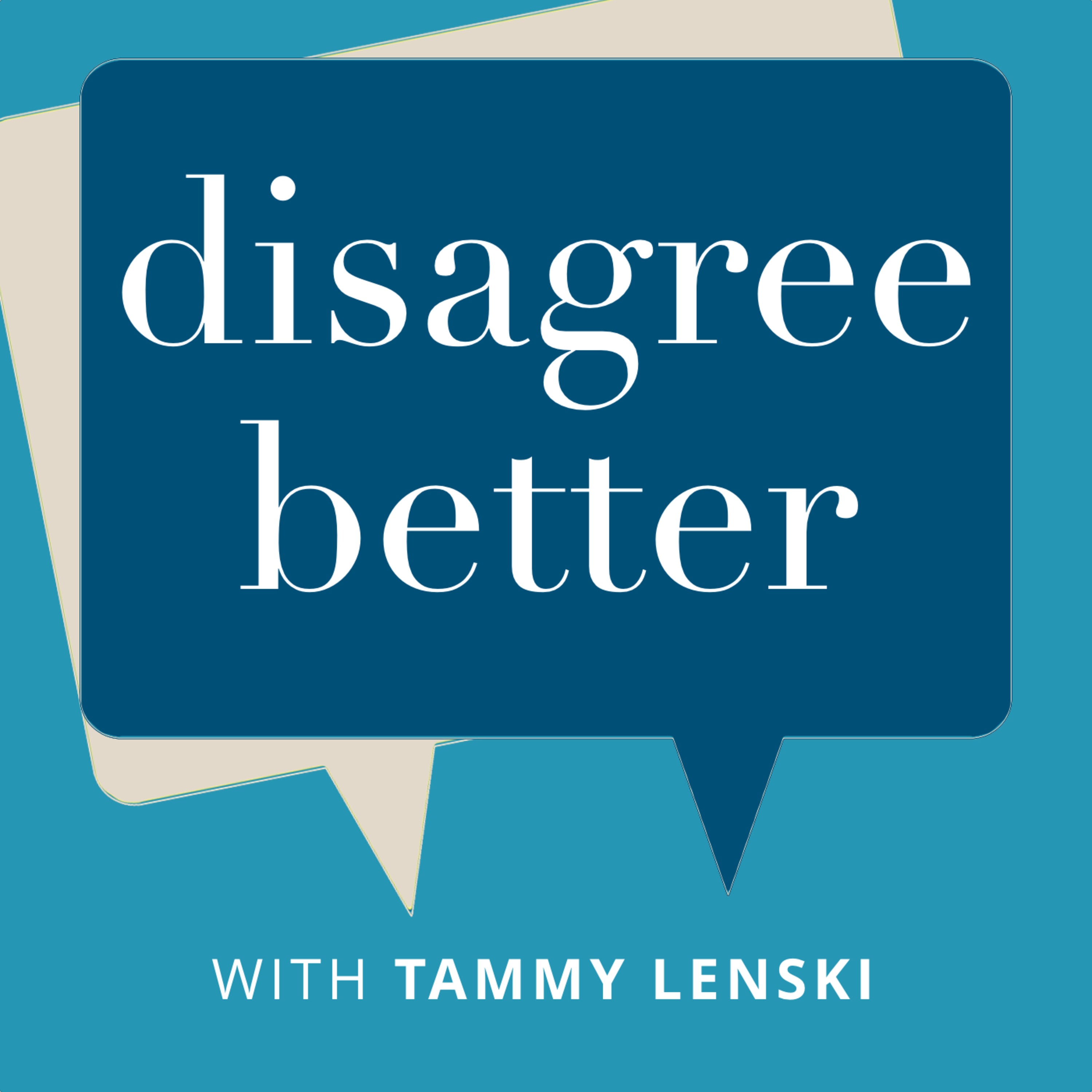 Disagree betterFuture-proof an agreement with a premortemWhen we’ve put in effort to solve a problem, we want our solution, decision, or agreement to have every chance at long-run success. Here’s a powerful way to improve our plan’s ability to stand the test of time: Go back to the future and test it with a premortem.
Find the transcript with links here.
To receive transcripts of new episodes automatically, subscribe at tammylenski.com/subscribe/.2017-10-2407 min
Disagree betterFuture-proof an agreement with a premortemWhen we’ve put in effort to solve a problem, we want our solution, decision, or agreement to have every chance at long-run success. Here’s a powerful way to improve our plan’s ability to stand the test of time: Go back to the future and test it with a premortem.
Find the transcript with links here.
To receive transcripts of new episodes automatically, subscribe at tammylenski.com/subscribe/.2017-10-2407 min Disagree betterThe space betweenThere’s a space that changes form and scale as we navigate our personal and business relationships. It’s the space between us, narrowing and softening when things are going well, widening and hardening in times of tension. The quality of our relationships, the degree of our happiness, and the success of our solutions are all influenced by The Space Between.
Find the transcript with links here.
To receive transcripts of new episodes automatically, subscribe at tammylenski.com/subscribe/.2017-09-2804 min
Disagree betterThe space betweenThere’s a space that changes form and scale as we navigate our personal and business relationships. It’s the space between us, narrowing and softening when things are going well, widening and hardening in times of tension. The quality of our relationships, the degree of our happiness, and the success of our solutions are all influenced by The Space Between.
Find the transcript with links here.
To receive transcripts of new episodes automatically, subscribe at tammylenski.com/subscribe/.2017-09-2804 min Disagree betterWhy you should make a habit of repeating this questionOur solutions are only as good as our understanding of the problem. There’s a good question we can use to help discover a problem’s roots. And we can turn it into an even better question by employing it liberally — more liberally than most of us naturally do.
Find the transcript with links here.
To receive transcripts of new episodes automatically, subscribe at tammylenski.com/subscribe/.2017-09-1806 min
Disagree betterWhy you should make a habit of repeating this questionOur solutions are only as good as our understanding of the problem. There’s a good question we can use to help discover a problem’s roots. And we can turn it into an even better question by employing it liberally — more liberally than most of us naturally do.
Find the transcript with links here.
To receive transcripts of new episodes automatically, subscribe at tammylenski.com/subscribe/.2017-09-1806 min Disagree betterA good way to overcome resistanceWhen we notice resistance, a typical response is to try persuading them out of their resistance. But that approach often causes more resistance, as they defend against our pushing. When we want to overcome resistance, there’s a better way.
Find the transcript with links here.
To receive transcripts of new episodes automatically, subscribe at tammylenski.com/subscribe/.2017-09-0604 min
Disagree betterA good way to overcome resistanceWhen we notice resistance, a typical response is to try persuading them out of their resistance. But that approach often causes more resistance, as they defend against our pushing. When we want to overcome resistance, there’s a better way.
Find the transcript with links here.
To receive transcripts of new episodes automatically, subscribe at tammylenski.com/subscribe/.2017-09-0604 min Disagree betterA surprisingly effective way to handle behavior problemsSometimes the best fix for behavior problems isn’t to address the behavior itself. Sometimes the most effective solution is to change the situation. Situation problems can cause behavior problems, and unless you know how to tell the difference, you can waste a whole lot of energy trying to get someone to change.
Find the transcript with links here.
To receive transcripts of new episodes automatically, subscribe at tammylenski.com/subscribe/.2017-08-0805 min
Disagree betterA surprisingly effective way to handle behavior problemsSometimes the best fix for behavior problems isn’t to address the behavior itself. Sometimes the most effective solution is to change the situation. Situation problems can cause behavior problems, and unless you know how to tell the difference, you can waste a whole lot of energy trying to get someone to change.
Find the transcript with links here.
To receive transcripts of new episodes automatically, subscribe at tammylenski.com/subscribe/.2017-08-0805 min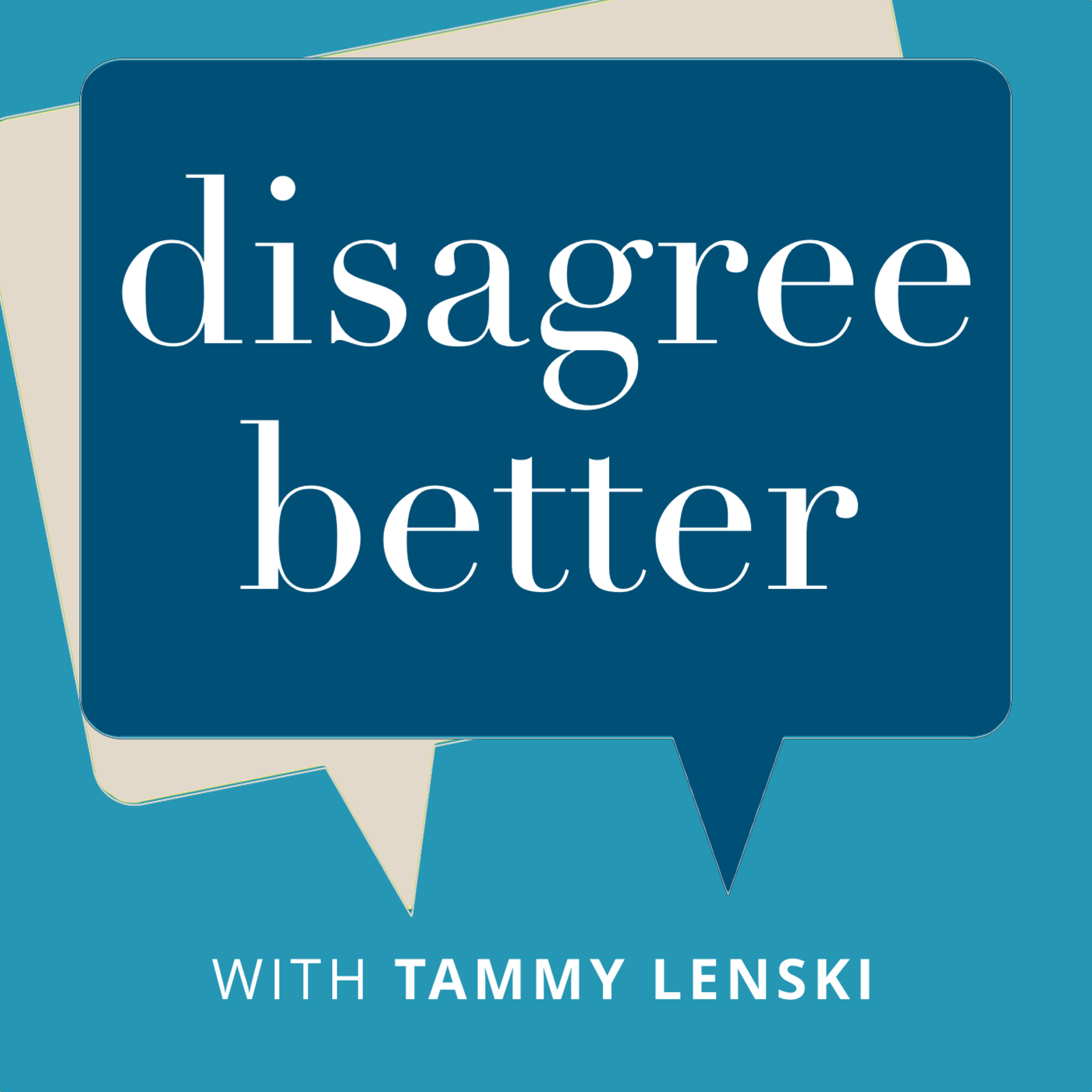 Disagree betterWalking a mile in their shoes may not be such a good idea after allAre you in a career where the ability to show empathy is important? New research suggests that how you arrive at empathy is as important as being empathetic. And that old adage about developing empathy by walking a mile in their shoes may actually increase your burnout potential.
Find the transcript with links here.
To receive transcripts of new episodes automatically, subscribe at tammylenski.com/subscribe/.2017-07-1104 min
Disagree betterWalking a mile in their shoes may not be such a good idea after allAre you in a career where the ability to show empathy is important? New research suggests that how you arrive at empathy is as important as being empathetic. And that old adage about developing empathy by walking a mile in their shoes may actually increase your burnout potential.
Find the transcript with links here.
To receive transcripts of new episodes automatically, subscribe at tammylenski.com/subscribe/.2017-07-1104 min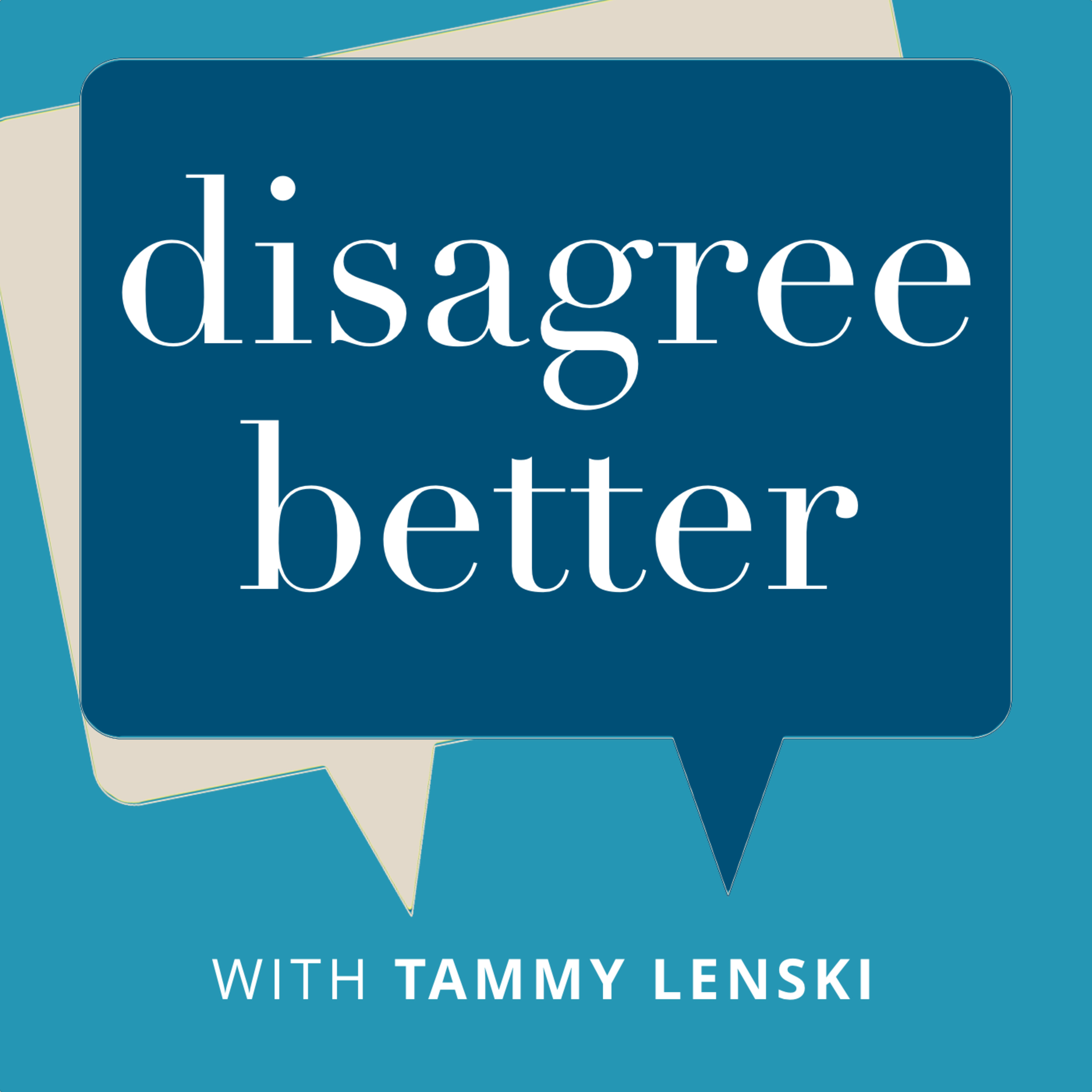 Disagree betterA simple little technique for turning criticism into constructive feedbackThe way you deliver feedback can make the difference between instant defensiveness and thoughtful consideration. One way to reduce immediate push-back is to “make it behavioral.” Here’s how to give feedback that’s behavioral and examples to translate the idea into words.
Find the transcript with links here.
To receive transcripts of new episodes automatically, subscribe at tammylenski.com/subscribe/.2017-06-2707 min
Disagree betterA simple little technique for turning criticism into constructive feedbackThe way you deliver feedback can make the difference between instant defensiveness and thoughtful consideration. One way to reduce immediate push-back is to “make it behavioral.” Here’s how to give feedback that’s behavioral and examples to translate the idea into words.
Find the transcript with links here.
To receive transcripts of new episodes automatically, subscribe at tammylenski.com/subscribe/.2017-06-2707 min Overthinking ConflictMaking Mediation Your Day Job with Tammy LenskiWe chat with Tammy Lenski about using mediation skills to test niches and grow conflict resolution businesses. Tammy can be found on the web at www.lenski.com How are you using mediation skills to grow your business? Chat with us @overconflict2017-06-1500 min
Overthinking ConflictMaking Mediation Your Day Job with Tammy LenskiWe chat with Tammy Lenski about using mediation skills to test niches and grow conflict resolution businesses. Tammy can be found on the web at www.lenski.com How are you using mediation skills to grow your business? Chat with us @overconflict2017-06-1500 min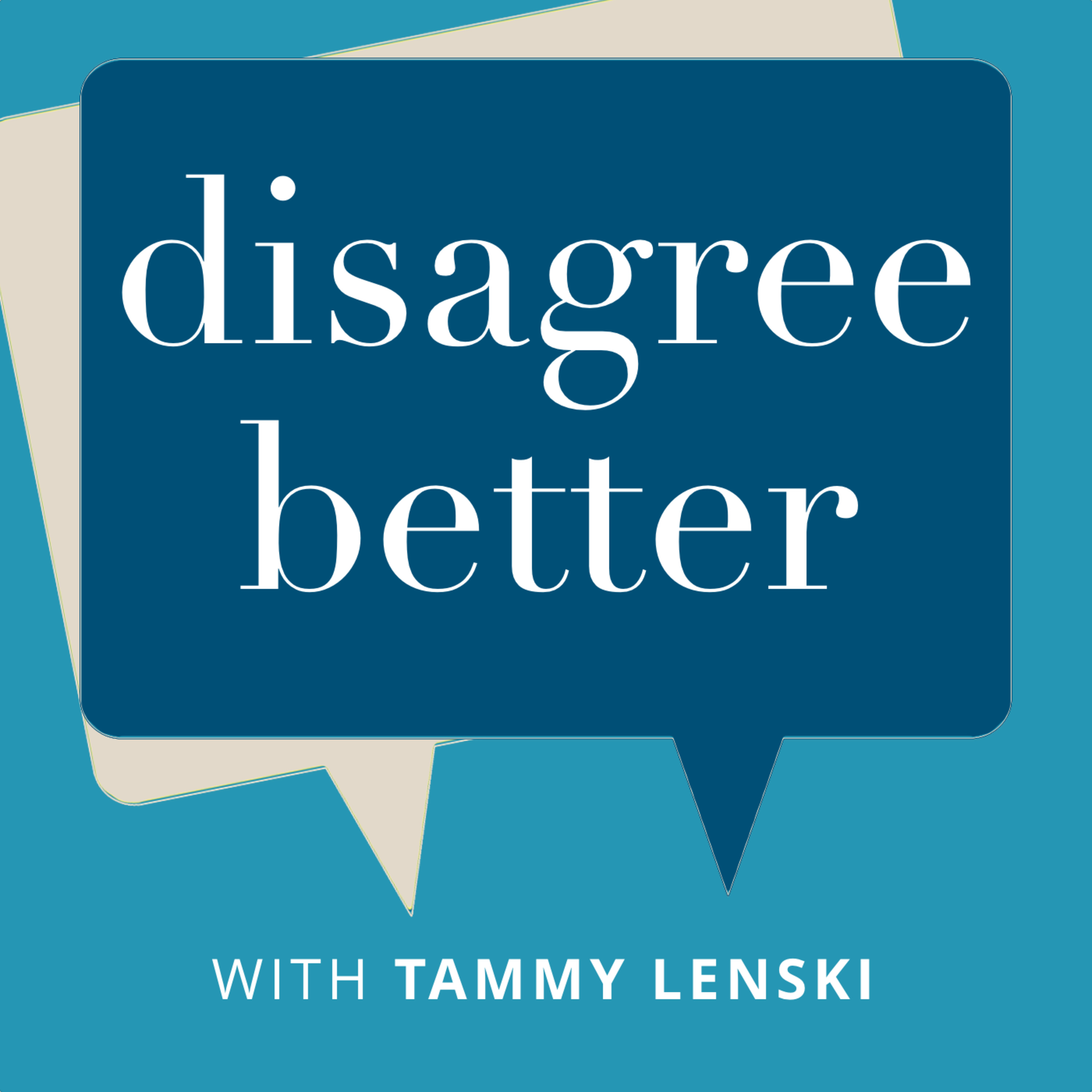 Disagree better5 counter-intuitive conflict resolution habits worth developingConflict resolution skills alone will only get you so far. How well you use those skills depends on your mindset and the habits you cultivate in yourself. Here are five game-changing conflict resolution habits that will help you use your skills optimally.
Find the transcript with links here.
To receive transcripts of new episodes automatically, subscribe at tammylenski.com/subscribe/.2017-06-1303 min
Disagree better5 counter-intuitive conflict resolution habits worth developingConflict resolution skills alone will only get you so far. How well you use those skills depends on your mindset and the habits you cultivate in yourself. Here are five game-changing conflict resolution habits that will help you use your skills optimally.
Find the transcript with links here.
To receive transcripts of new episodes automatically, subscribe at tammylenski.com/subscribe/.2017-06-1303 min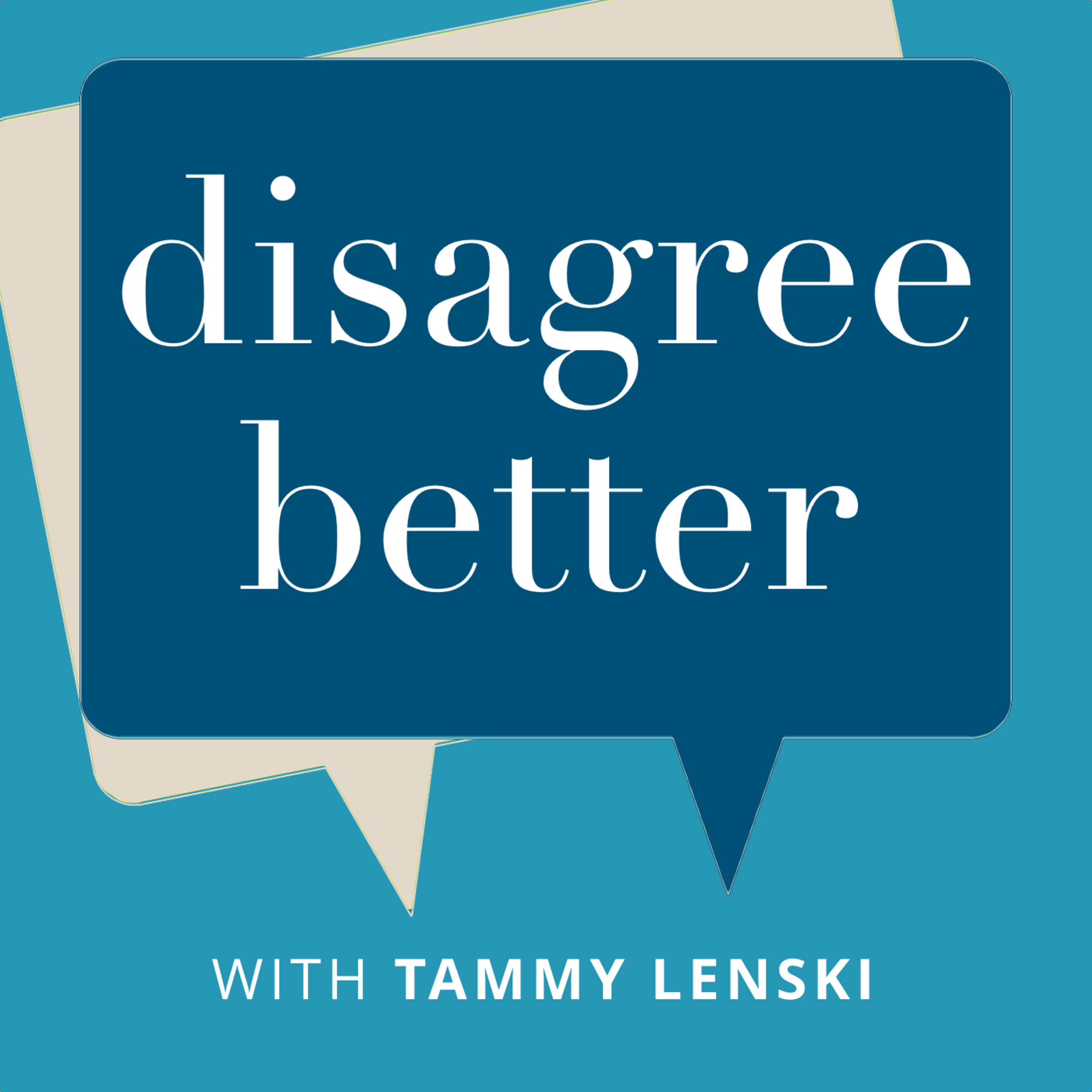 Disagree betterHow category errors make conflict harder to resolveWe put people, places, things, and ideas into categories. Categories help us navigate the world and it’s natural to categorize. We categorize in conflict, too. But the tension of conflict increases the chances we’ll make category errors — and category errors can really get in the way of conflict resolution.
Find the transcript with links here.
To receive transcripts of new episodes automatically, subscribe at tammylenski.com/subscribe/.2017-05-2905 min
Disagree betterHow category errors make conflict harder to resolveWe put people, places, things, and ideas into categories. Categories help us navigate the world and it’s natural to categorize. We categorize in conflict, too. But the tension of conflict increases the chances we’ll make category errors — and category errors can really get in the way of conflict resolution.
Find the transcript with links here.
To receive transcripts of new episodes automatically, subscribe at tammylenski.com/subscribe/.2017-05-2905 min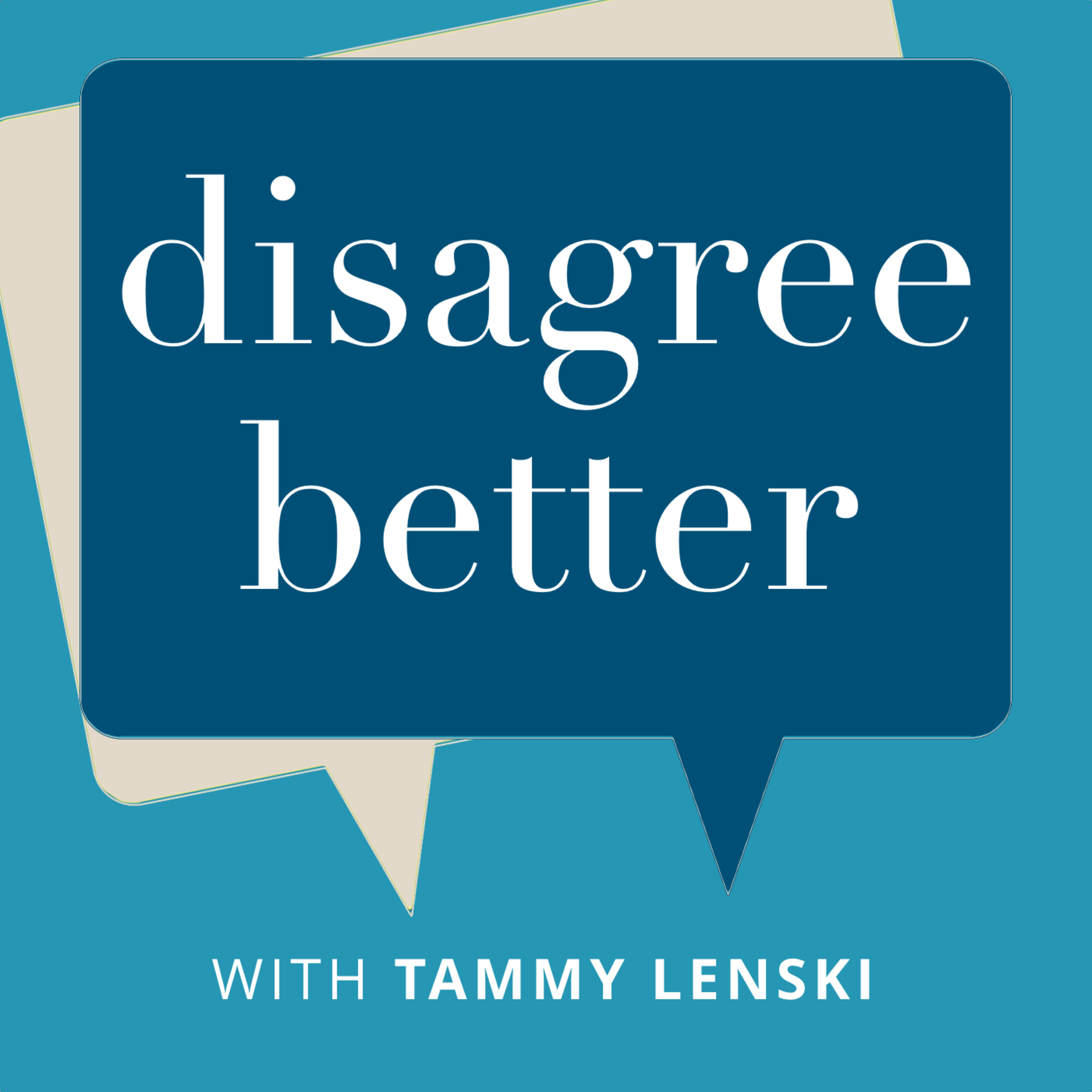 Disagree betterA super simple method for regaining self-controlOne reason conflict can undermine self-control is that stress compromises our brains’ emotion-regulation circuitry. But all is not lost when we’ve been emotionally hijacked. Recent research offers a new tool for regaining self-control soon after the stress of an argument: Briefly reminiscing about a happy memory.
Find the transcript with links here.
To receive transcripts of new episodes automatically, subscribe at tammylenski.com/subscribe/.2017-05-1605 min
Disagree betterA super simple method for regaining self-controlOne reason conflict can undermine self-control is that stress compromises our brains’ emotion-regulation circuitry. But all is not lost when we’ve been emotionally hijacked. Recent research offers a new tool for regaining self-control soon after the stress of an argument: Briefly reminiscing about a happy memory.
Find the transcript with links here.
To receive transcripts of new episodes automatically, subscribe at tammylenski.com/subscribe/.2017-05-1605 min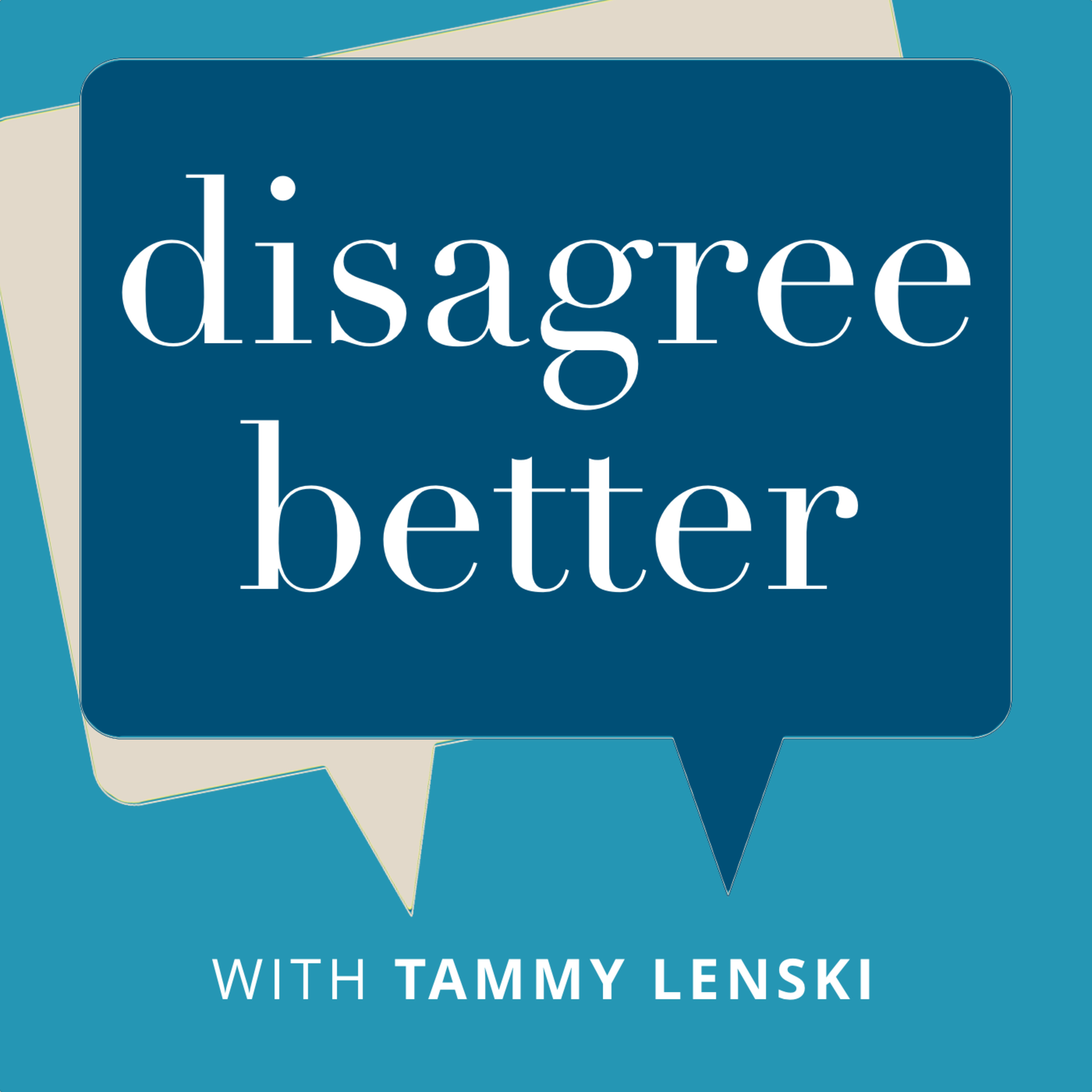 Disagree betterSweeping conflict under the rugSweeping important conflict under the rug doesn’t make it go away. We know this, even as we continue to do it. Hidden so we don’t have to look it in the eye, the conflict still draws our attention and increases our frustration.
Find the transcript with links here.
To receive transcripts of new episodes automatically, subscribe at tammylenski.com/subscribe/.2017-03-2102 min
Disagree betterSweeping conflict under the rugSweeping important conflict under the rug doesn’t make it go away. We know this, even as we continue to do it. Hidden so we don’t have to look it in the eye, the conflict still draws our attention and increases our frustration.
Find the transcript with links here.
To receive transcripts of new episodes automatically, subscribe at tammylenski.com/subscribe/.2017-03-2102 min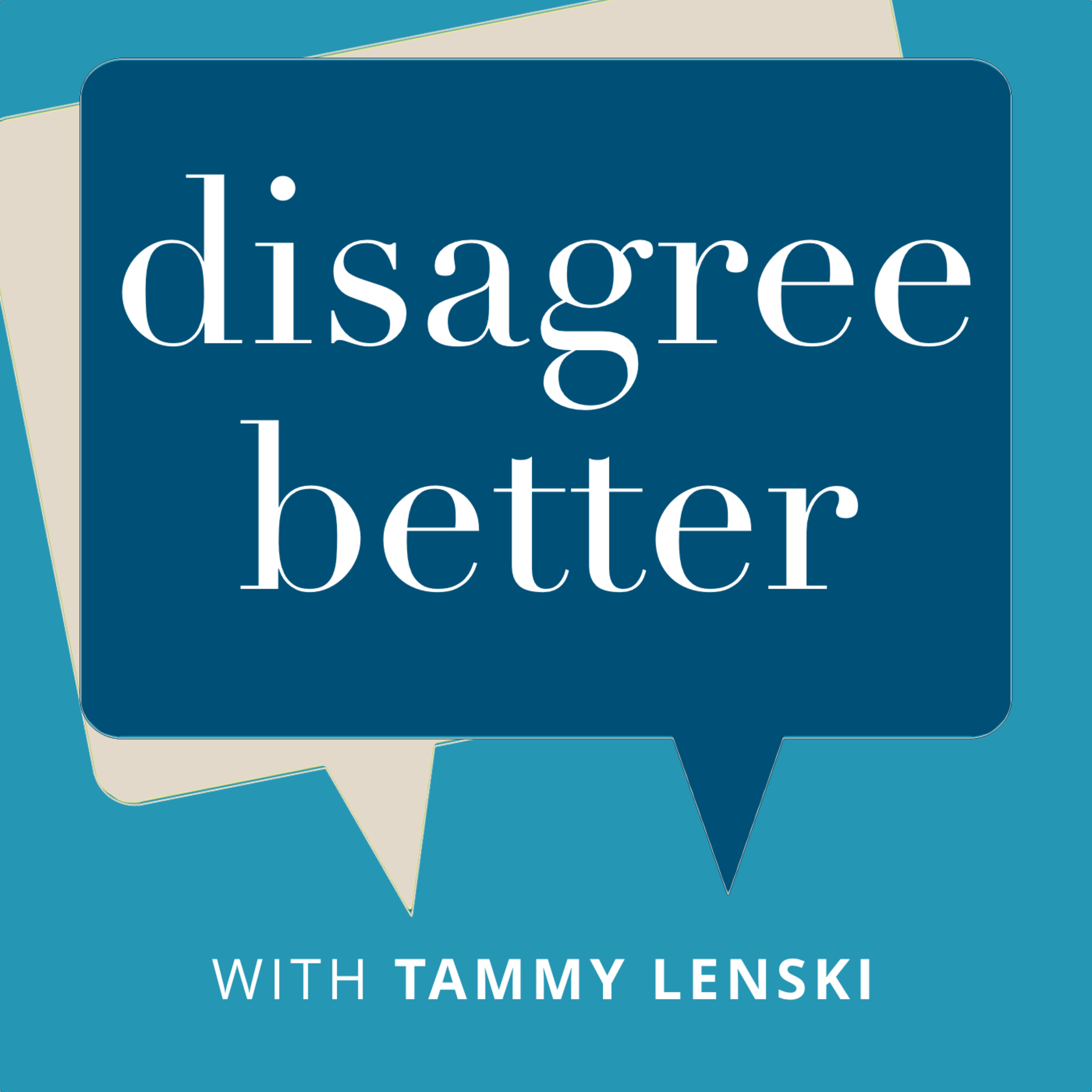 Disagree betterDe-escalate anger with this straightforward invitationWhen someone is emotionally swamped by anger, it can be helpful to redirect them temporarily away from their feelings and engage their cognitive capacities. The following invitation helps de-escalate anger particularly well and deserves a permanent home in your conflict resolution toolbox.
Find the transcript with links here.
To receive transcripts of new episodes automatically, subscribe at tammylenski.com/subscribe/.2017-02-2102 min
Disagree betterDe-escalate anger with this straightforward invitationWhen someone is emotionally swamped by anger, it can be helpful to redirect them temporarily away from their feelings and engage their cognitive capacities. The following invitation helps de-escalate anger particularly well and deserves a permanent home in your conflict resolution toolbox.
Find the transcript with links here.
To receive transcripts of new episodes automatically, subscribe at tammylenski.com/subscribe/.2017-02-2102 min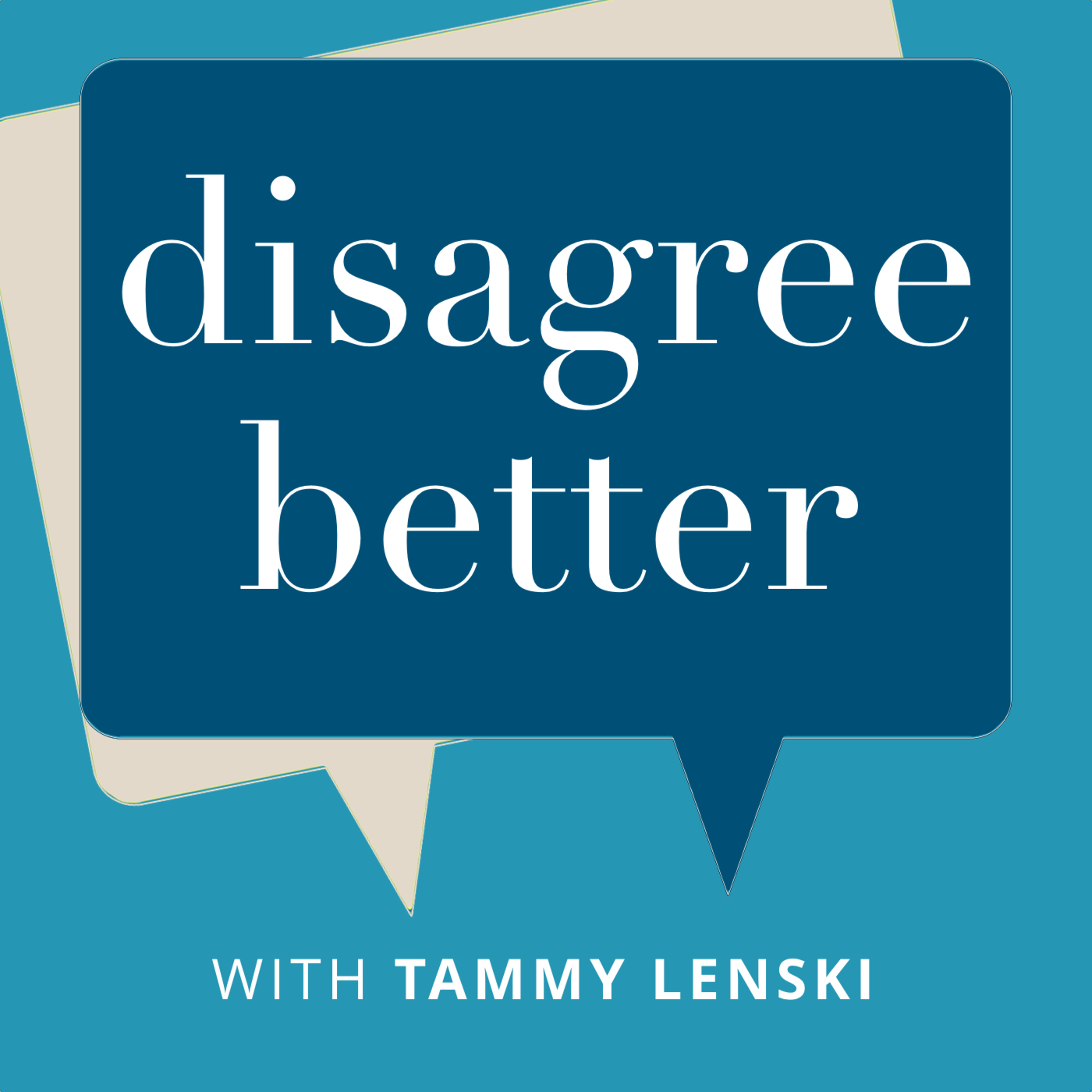 Disagree betterOne intriguing reason blame feels hard to takeThe next time someone declines to take responsibility for words or actions that had a bad impact, don’t immediately assume it’s a flaw in their character. Maybe it’s just their protective brain doing its job.
Find the transcript with links here.
To receive transcripts of new episodes automatically, subscribe at tammylenski.com/subscribe/.2017-02-0703 min
Disagree betterOne intriguing reason blame feels hard to takeThe next time someone declines to take responsibility for words or actions that had a bad impact, don’t immediately assume it’s a flaw in their character. Maybe it’s just their protective brain doing its job.
Find the transcript with links here.
To receive transcripts of new episodes automatically, subscribe at tammylenski.com/subscribe/.2017-02-0703 min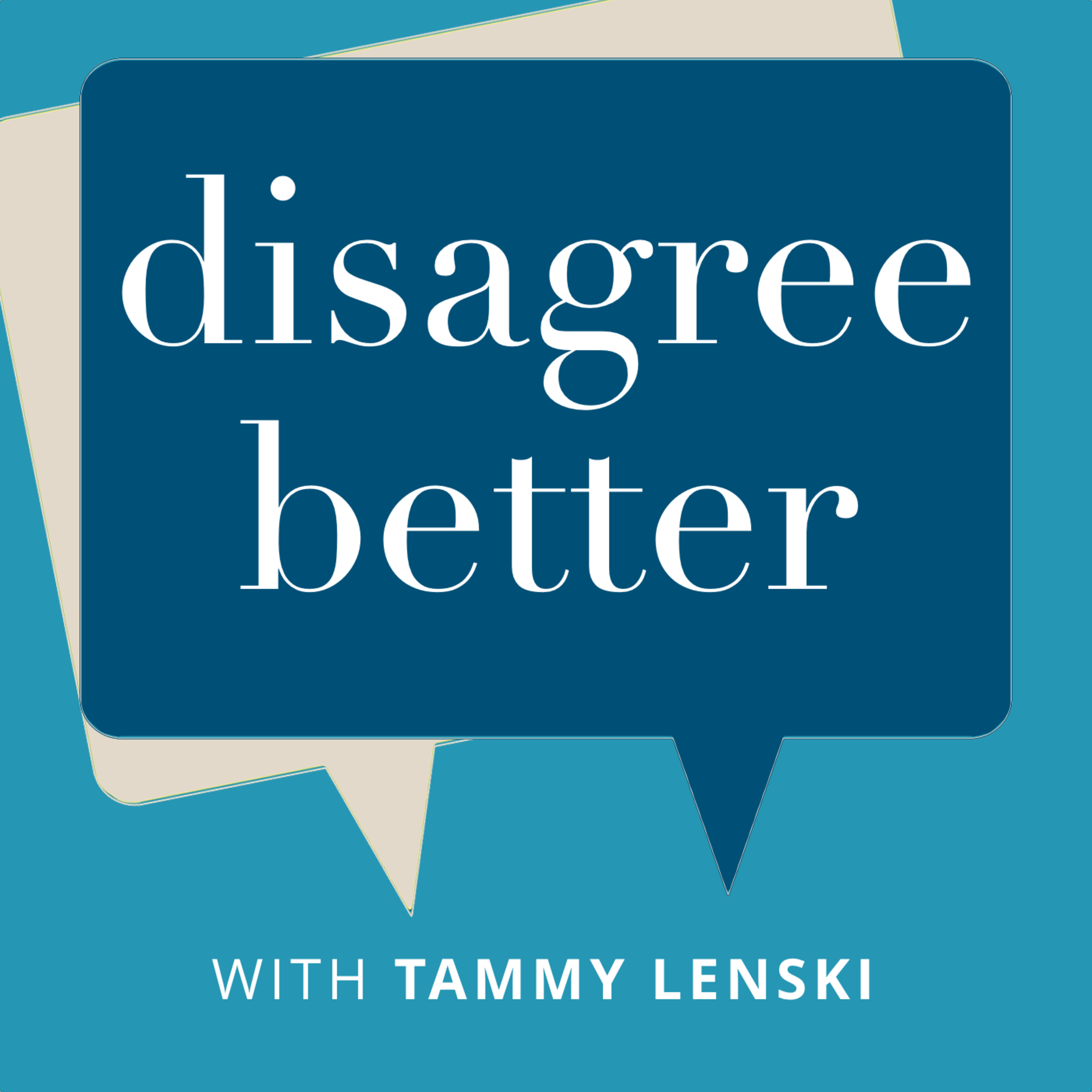 Disagree betterHow to say no persuasivelyBeing able to say no is essential for good day-to-day negotiating. Yet it can evoke anxiety about appearing obstructive, unkind, or unhelpful. If you want a way to keep yourself from saying yes when you really do need to say no, pack this research-supported technique in your toolkit.
Find the transcript with links here.
To receive transcripts of new episodes automatically, subscribe at tammylenski.com/subscribe/.2017-01-3104 min
Disagree betterHow to say no persuasivelyBeing able to say no is essential for good day-to-day negotiating. Yet it can evoke anxiety about appearing obstructive, unkind, or unhelpful. If you want a way to keep yourself from saying yes when you really do need to say no, pack this research-supported technique in your toolkit.
Find the transcript with links here.
To receive transcripts of new episodes automatically, subscribe at tammylenski.com/subscribe/.2017-01-3104 min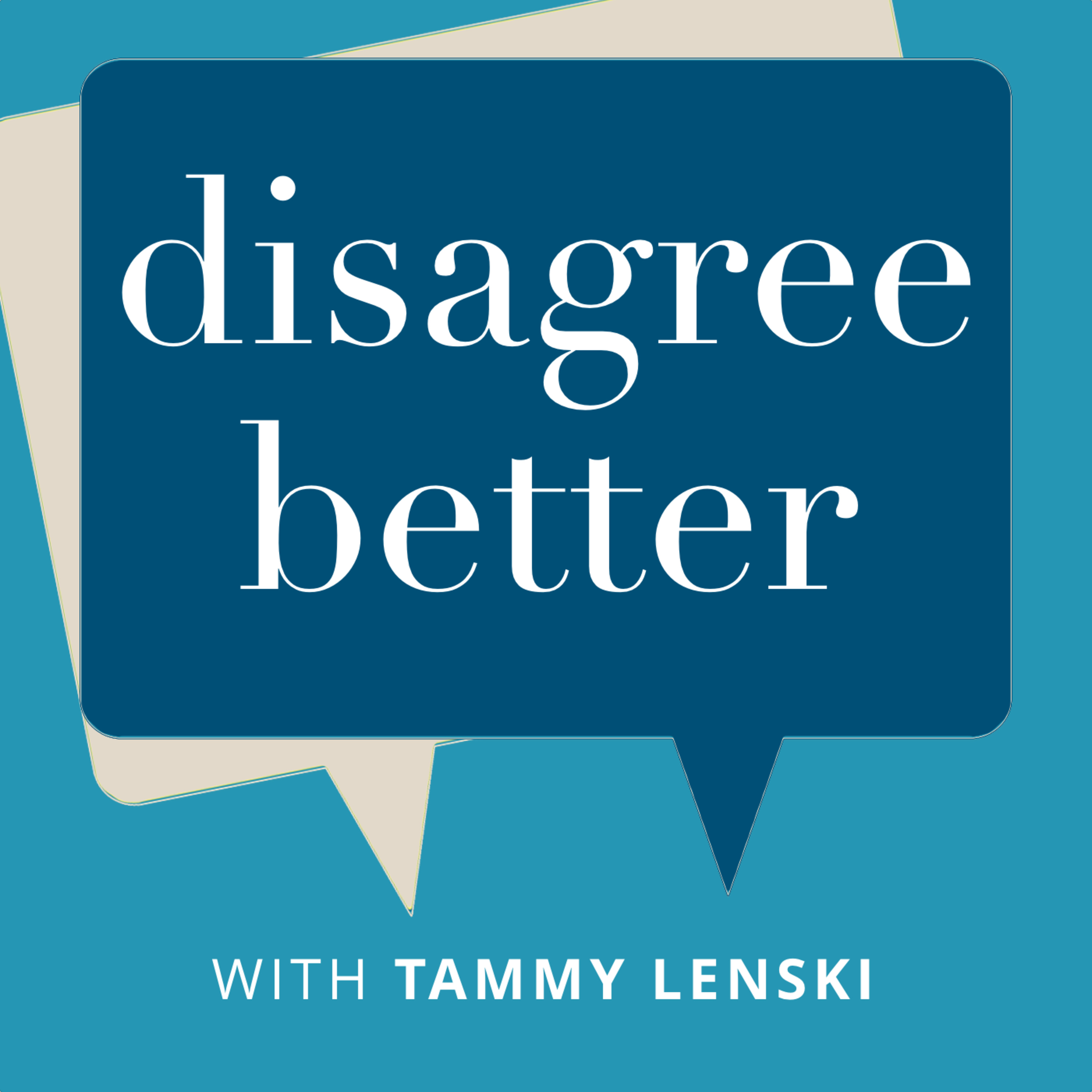 Disagree betterThink with your hands for better problem solvingNew research is challenging the notion that thinking, problem solving, and decision making take place strictly in the head. And finally giving me some credibility after years of placing interactive toys in the middle of my mediation table.
Find the transcript with links here.
To receive transcripts of new episodes automatically, subscribe at tammylenski.com/subscribe/.2017-01-1703 min
Disagree betterThink with your hands for better problem solvingNew research is challenging the notion that thinking, problem solving, and decision making take place strictly in the head. And finally giving me some credibility after years of placing interactive toys in the middle of my mediation table.
Find the transcript with links here.
To receive transcripts of new episodes automatically, subscribe at tammylenski.com/subscribe/.2017-01-1703 min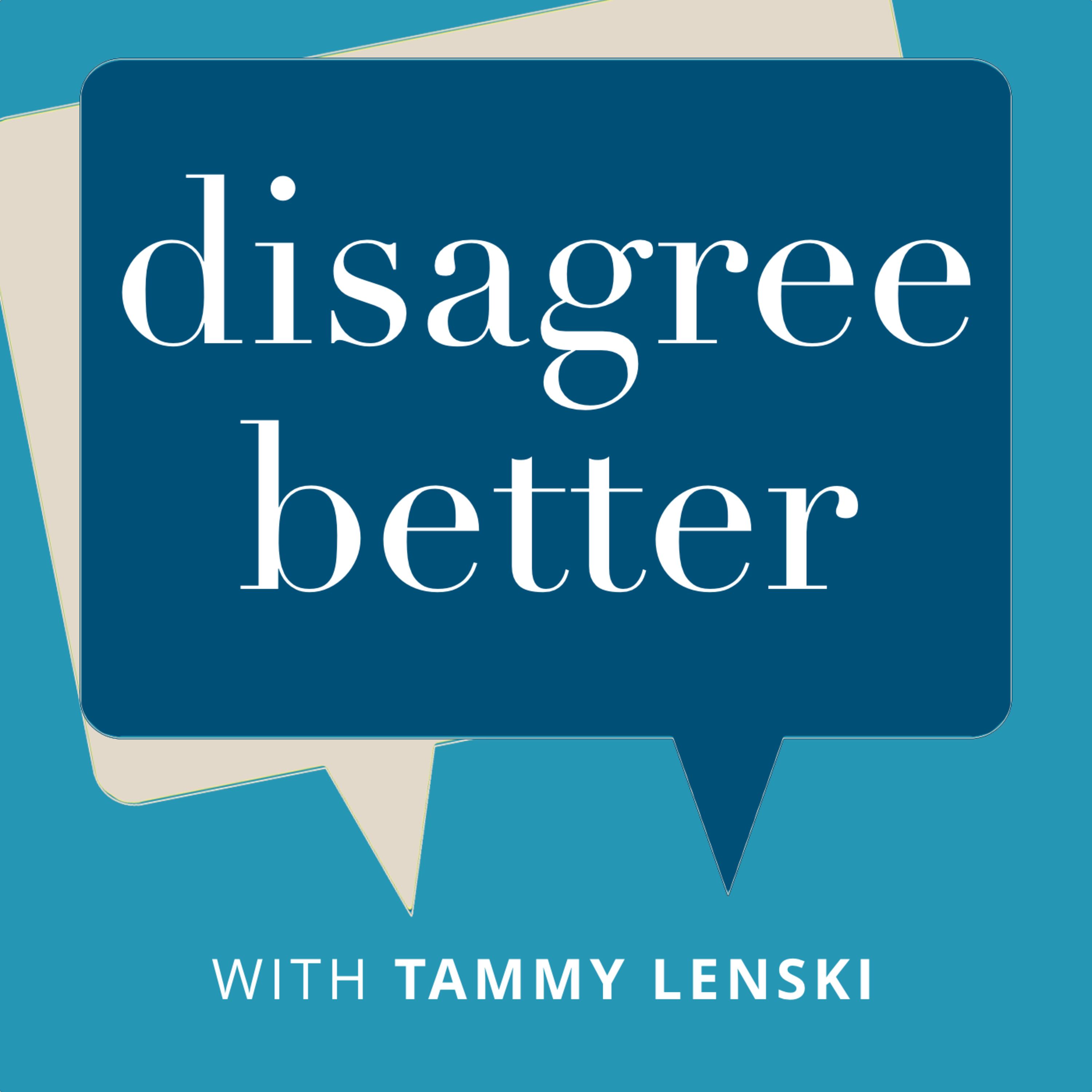 Disagree betterHow to show you’re really listening without interruptingWant to break the advice-giving habit but aren’t sure what to do instead? Want someone else to stop giving you unsolicited advice all the time? Here’s a good question to ask in those moments and a simple alternative to giving advice when what they really want is someone to listen.
Find the transcript with links here.
To receive transcripts of new episodes automatically, subscribe at tammylenski.com/subscribe/.2016-12-1302 min
Disagree betterHow to show you’re really listening without interruptingWant to break the advice-giving habit but aren’t sure what to do instead? Want someone else to stop giving you unsolicited advice all the time? Here’s a good question to ask in those moments and a simple alternative to giving advice when what they really want is someone to listen.
Find the transcript with links here.
To receive transcripts of new episodes automatically, subscribe at tammylenski.com/subscribe/.2016-12-1302 min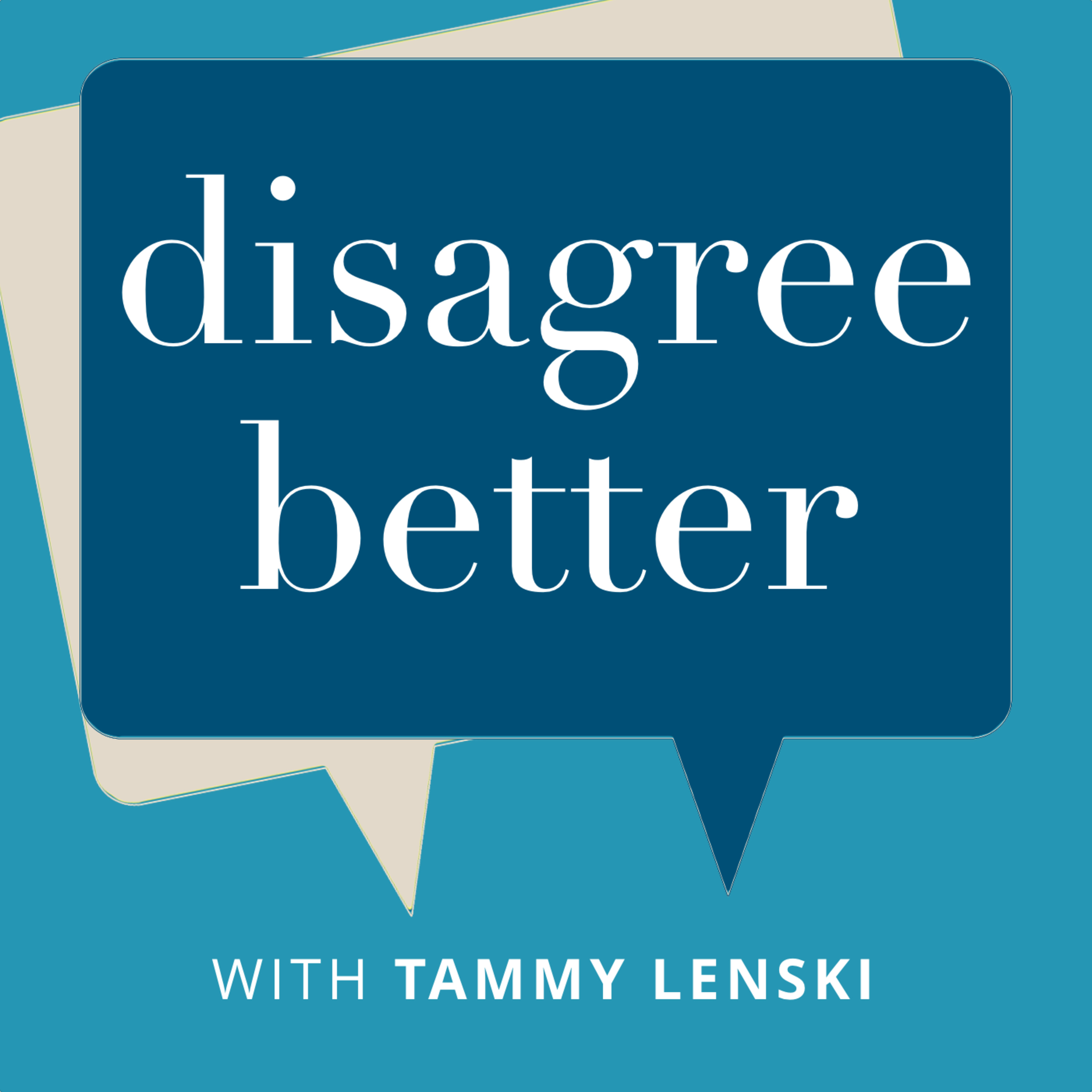 Disagree betterWeaving the narrative of a conflictConflict takes root in the space between our narrative about what happened and theirs. One way to understand conflict resolution is as the act of weaving a new joint narrative, one that includes the most valuable threads in each story.
Find the transcript with links here.
To receive transcripts of new episodes automatically, subscribe at tammylenski.com/subscribe/.2016-11-2903 min
Disagree betterWeaving the narrative of a conflictConflict takes root in the space between our narrative about what happened and theirs. One way to understand conflict resolution is as the act of weaving a new joint narrative, one that includes the most valuable threads in each story.
Find the transcript with links here.
To receive transcripts of new episodes automatically, subscribe at tammylenski.com/subscribe/.2016-11-2903 min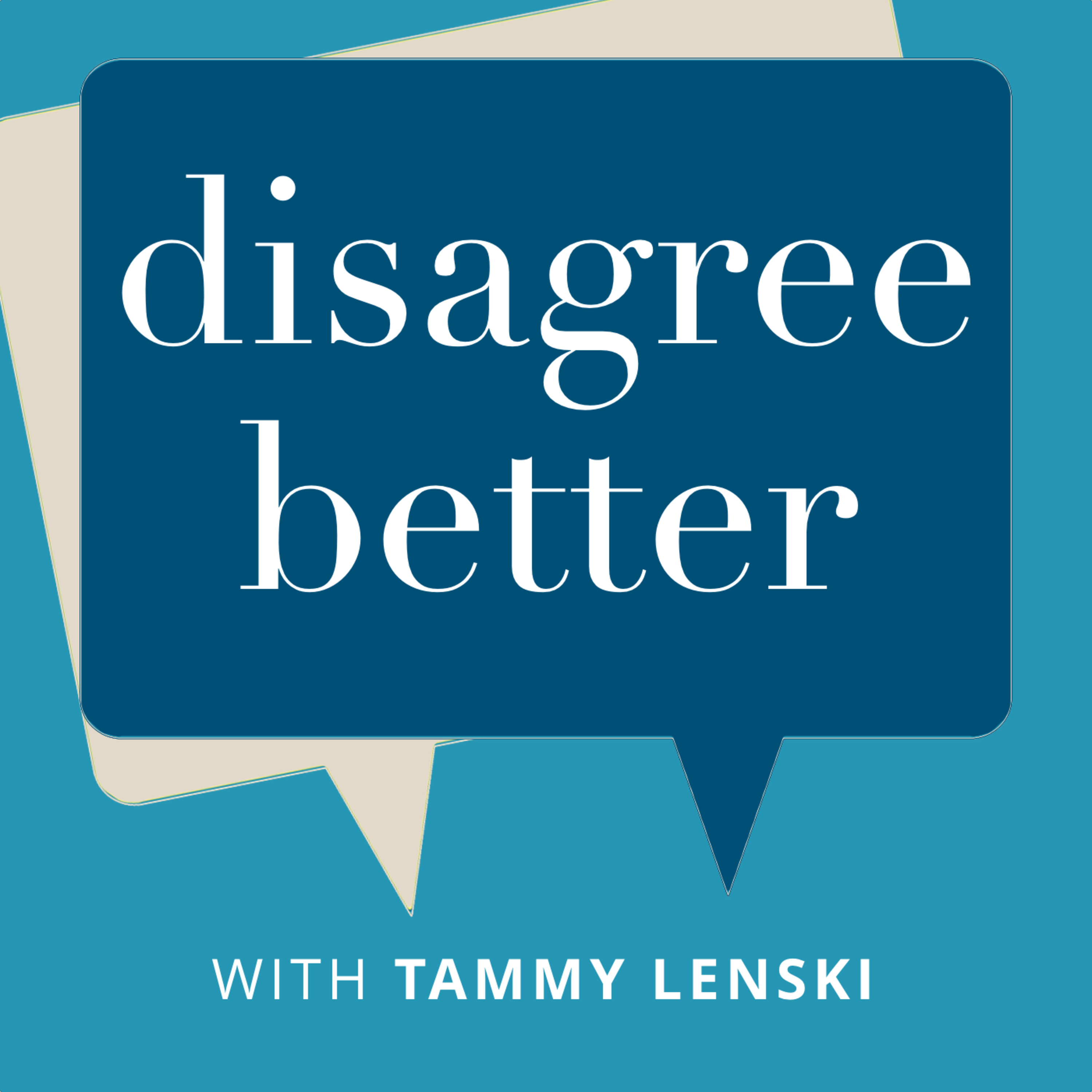 Disagree betterWant someone to calm down? Don’t do thisI’ve written that anger is a messenger that won’t shut up until its message is heard and understood. But if the anger is so big or so loud you can’t hear straight, there are things you can do to help someone calm down. And a few things you shouldn’t do…like these five missteps.
Find the transcript with links here.
To receive transcripts of new episodes automatically, subscribe at tammylenski.com/subscribe/.2016-11-2204 min
Disagree betterWant someone to calm down? Don’t do thisI’ve written that anger is a messenger that won’t shut up until its message is heard and understood. But if the anger is so big or so loud you can’t hear straight, there are things you can do to help someone calm down. And a few things you shouldn’t do…like these five missteps.
Find the transcript with links here.
To receive transcripts of new episodes automatically, subscribe at tammylenski.com/subscribe/.2016-11-2204 min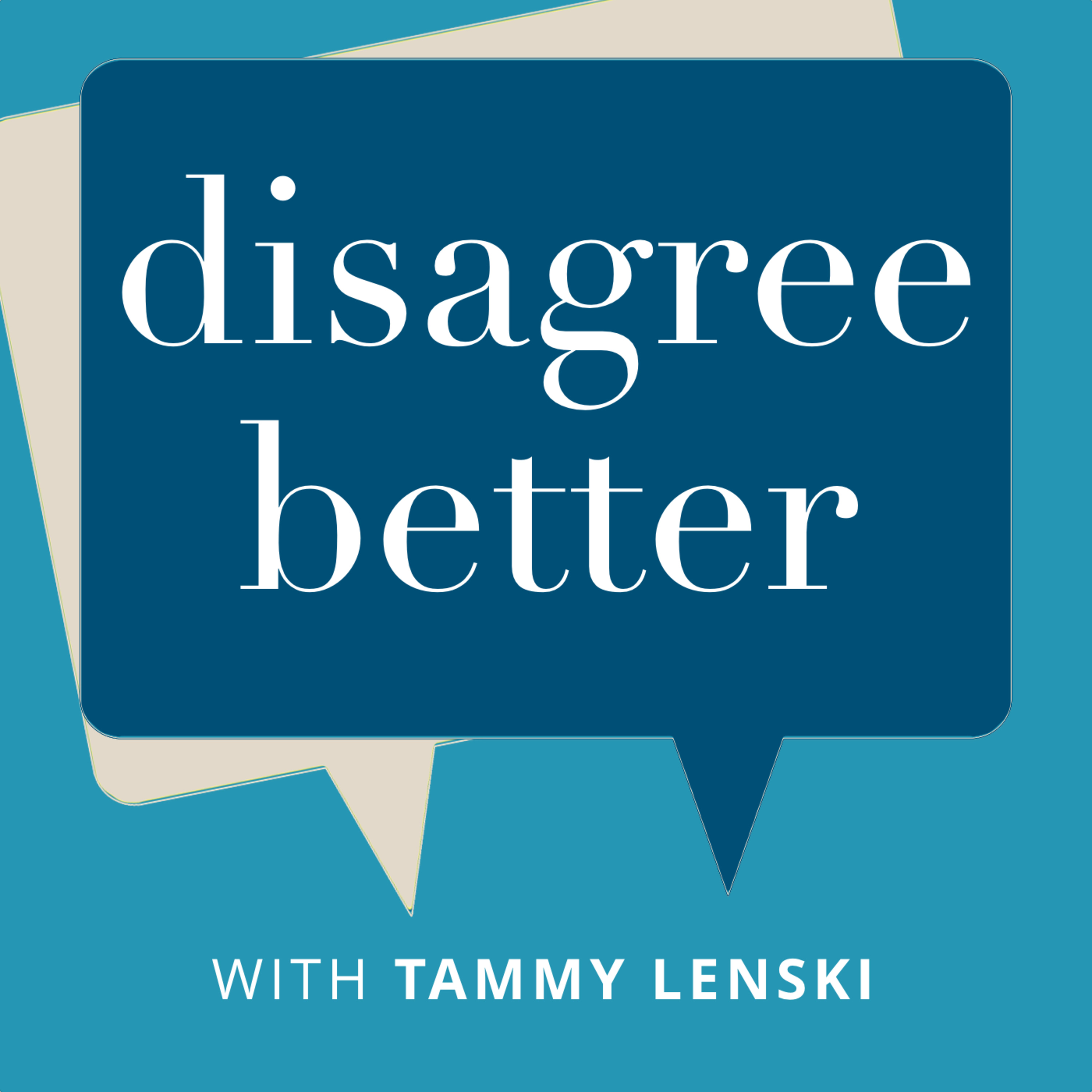 Disagree betterHow to ask questions like a proWatch a good mediator at work and you’ll likely notice that good questions are her stock-in-trade. Watch a masterful negotiator and you’ll see the same. If you want better conflict resolution results, learn how to ask questions that shift thinking and prompt fresh ideas.
Find the transcript with links here.
To receive transcripts of new episodes automatically, subscribe at tammylenski.com/subscribe/.2016-11-1507 min
Disagree betterHow to ask questions like a proWatch a good mediator at work and you’ll likely notice that good questions are her stock-in-trade. Watch a masterful negotiator and you’ll see the same. If you want better conflict resolution results, learn how to ask questions that shift thinking and prompt fresh ideas.
Find the transcript with links here.
To receive transcripts of new episodes automatically, subscribe at tammylenski.com/subscribe/.2016-11-1507 min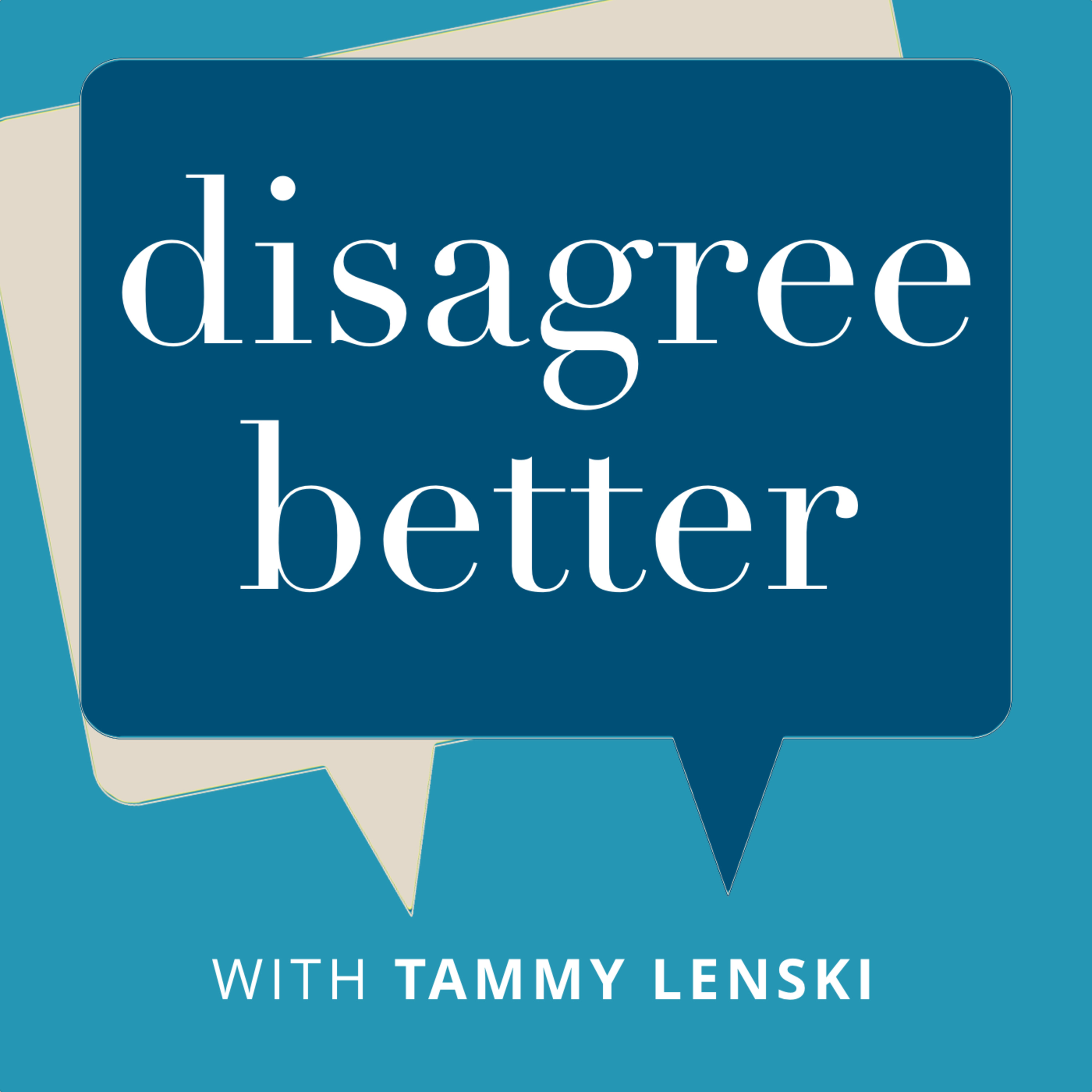 Disagree betterWant more self-control during conflict? Try appealing to your future selfConflict can rob you of two precious mental faculties useful for sorting things out: The ability to view the situation from the other person’s perspective and the ability to check your impulses. New research suggests that your future self can help you recapture those abilities.
Find the transcript with links here.
To receive transcripts of new episodes automatically, subscribe at tammylenski.com/subscribe/.2016-11-0804 min
Disagree betterWant more self-control during conflict? Try appealing to your future selfConflict can rob you of two precious mental faculties useful for sorting things out: The ability to view the situation from the other person’s perspective and the ability to check your impulses. New research suggests that your future self can help you recapture those abilities.
Find the transcript with links here.
To receive transcripts of new episodes automatically, subscribe at tammylenski.com/subscribe/.2016-11-0804 min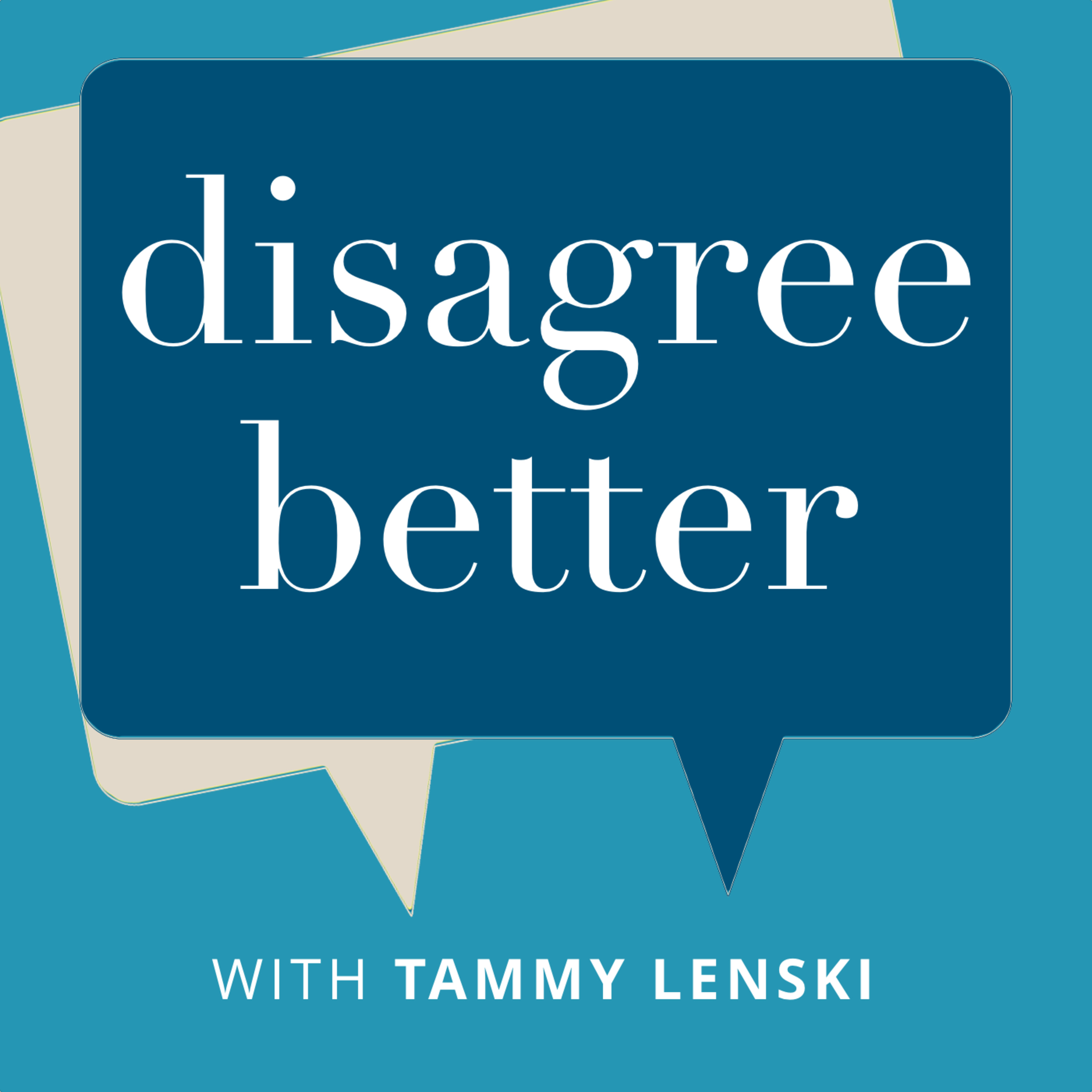 Disagree betterKintsugi and the art of mending relationship conflictConflict in personal, professional and business relationships leaves permanent cracks and breaks behind. What if, instead of trying to ignore or hide the damage, we revered it, understanding that “better than new” is more valuable than “good as new”?
Find the transcript with links here.
To receive transcripts of new episodes automatically, subscribe at tammylenski.com/subscribe/.2016-10-2503 min
Disagree betterKintsugi and the art of mending relationship conflictConflict in personal, professional and business relationships leaves permanent cracks and breaks behind. What if, instead of trying to ignore or hide the damage, we revered it, understanding that “better than new” is more valuable than “good as new”?
Find the transcript with links here.
To receive transcripts of new episodes automatically, subscribe at tammylenski.com/subscribe/.2016-10-2503 min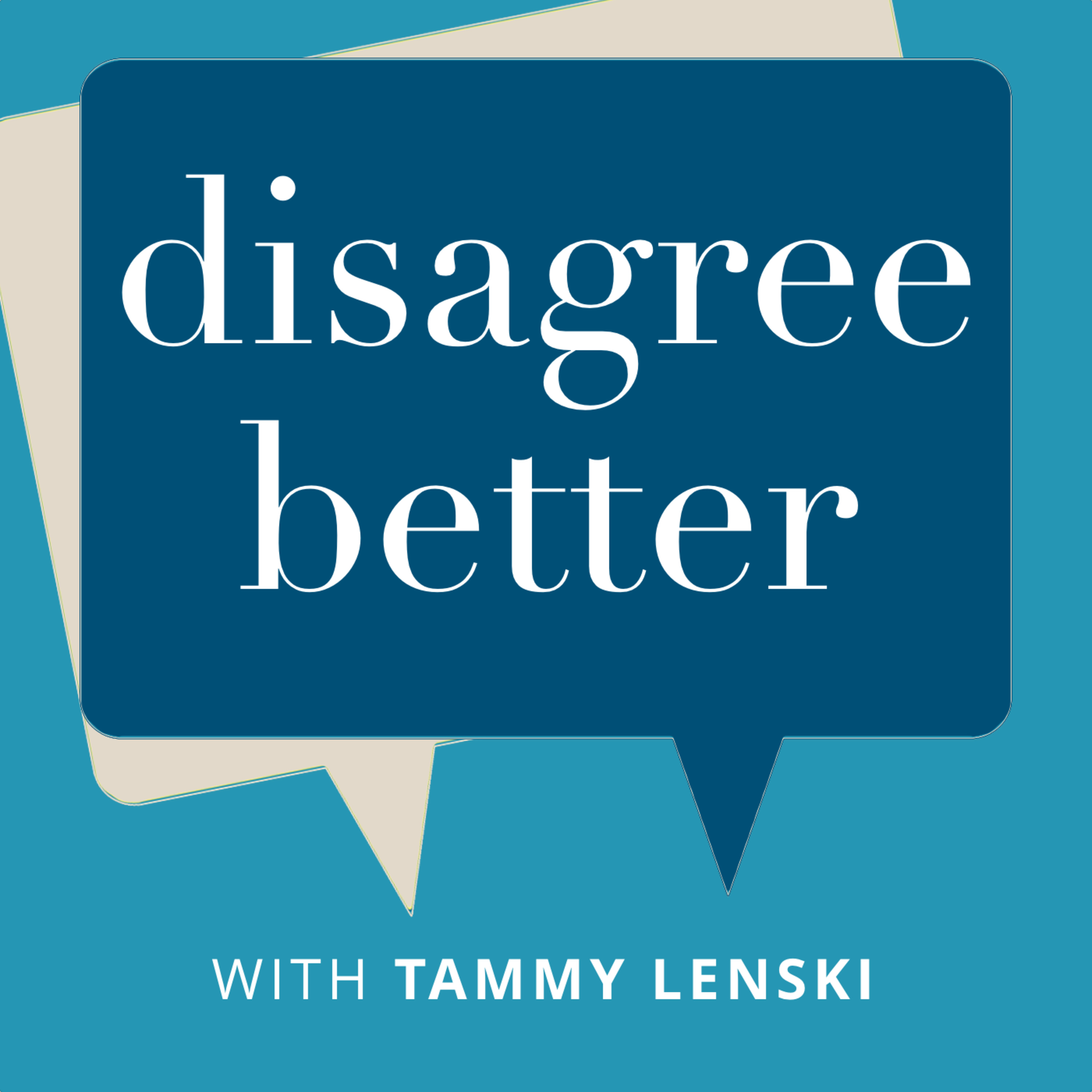 Disagree better5 impactful phrases to interrupt habitual yellingSome people do conflict loudly, whether due to familial or cultural roots, habit, or a low boiling point. When you want to interrupt someone’s habitual yelling during conflict, try to make the request without contributing to the fight.
Find the transcript with links here.
To receive transcripts of new episodes automatically, subscribe at tammylenski.com/subscribe/.2016-10-1804 min
Disagree better5 impactful phrases to interrupt habitual yellingSome people do conflict loudly, whether due to familial or cultural roots, habit, or a low boiling point. When you want to interrupt someone’s habitual yelling during conflict, try to make the request without contributing to the fight.
Find the transcript with links here.
To receive transcripts of new episodes automatically, subscribe at tammylenski.com/subscribe/.2016-10-1804 min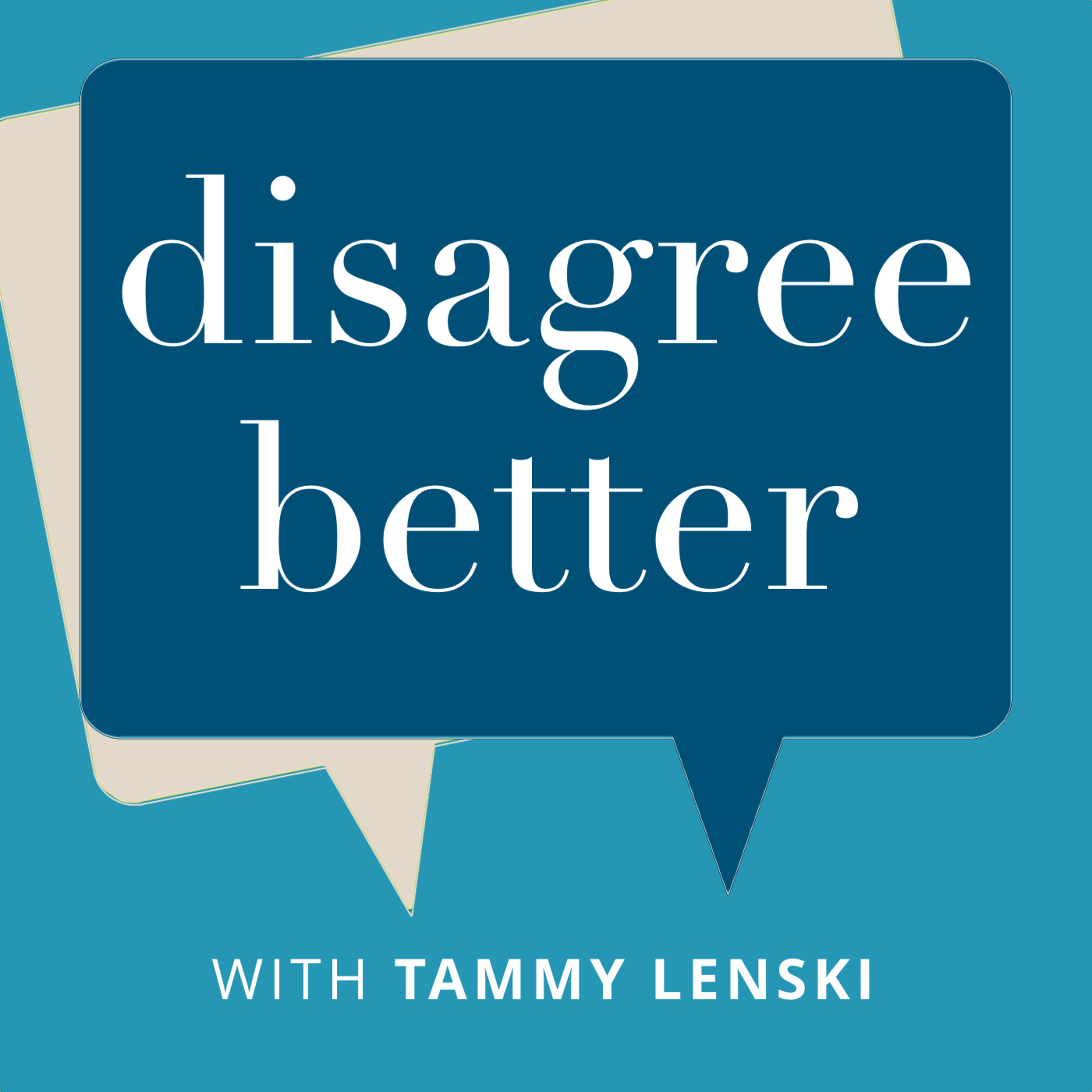 Disagree betterWhen conflict is real but not trueChronic tension and conflict can provoke reactions that are more about what happened in the past than what’s happening at this very moment. In such instances, the conflict may be quite real but not entirely true.
Find the transcript with links here.
To receive transcripts of new episodes automatically, subscribe at tammylenski.com/subscribe/.2016-10-1104 min
Disagree betterWhen conflict is real but not trueChronic tension and conflict can provoke reactions that are more about what happened in the past than what’s happening at this very moment. In such instances, the conflict may be quite real but not entirely true.
Find the transcript with links here.
To receive transcripts of new episodes automatically, subscribe at tammylenski.com/subscribe/.2016-10-1104 min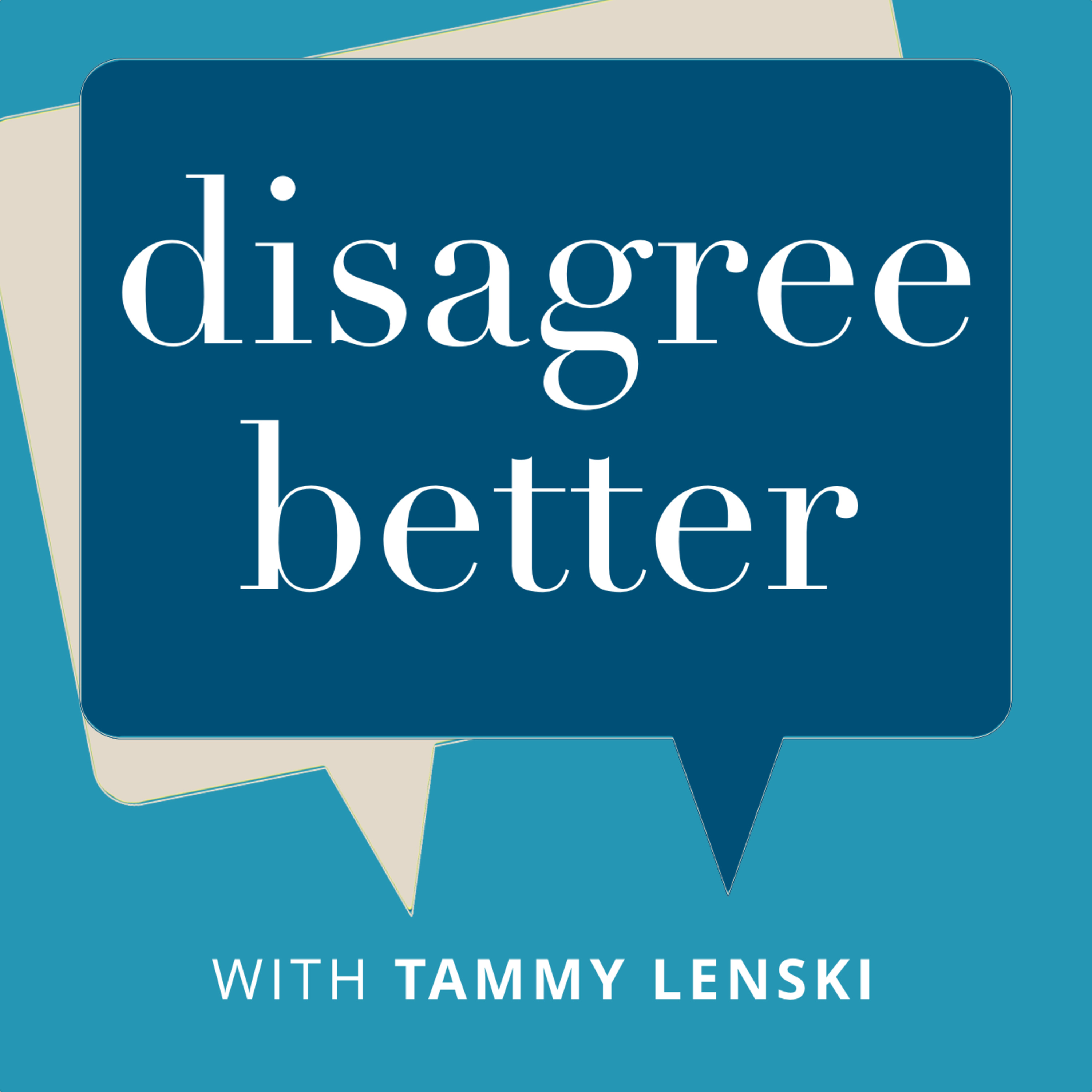 Disagree betterFriction with a colleague? Ask for a favorWhen friction enters a working relationship, sometimes the best path through isn’t to talk it out. Sometimes the best path through is an indirect one — ask for a favor. Here’s how the Ben Franklin Effect works.
Find the transcript with links here.
To receive transcripts of new episodes automatically, subscribe at tammylenski.com/subscribe/.2016-10-0402 min
Disagree betterFriction with a colleague? Ask for a favorWhen friction enters a working relationship, sometimes the best path through isn’t to talk it out. Sometimes the best path through is an indirect one — ask for a favor. Here’s how the Ben Franklin Effect works.
Find the transcript with links here.
To receive transcripts of new episodes automatically, subscribe at tammylenski.com/subscribe/.2016-10-0402 min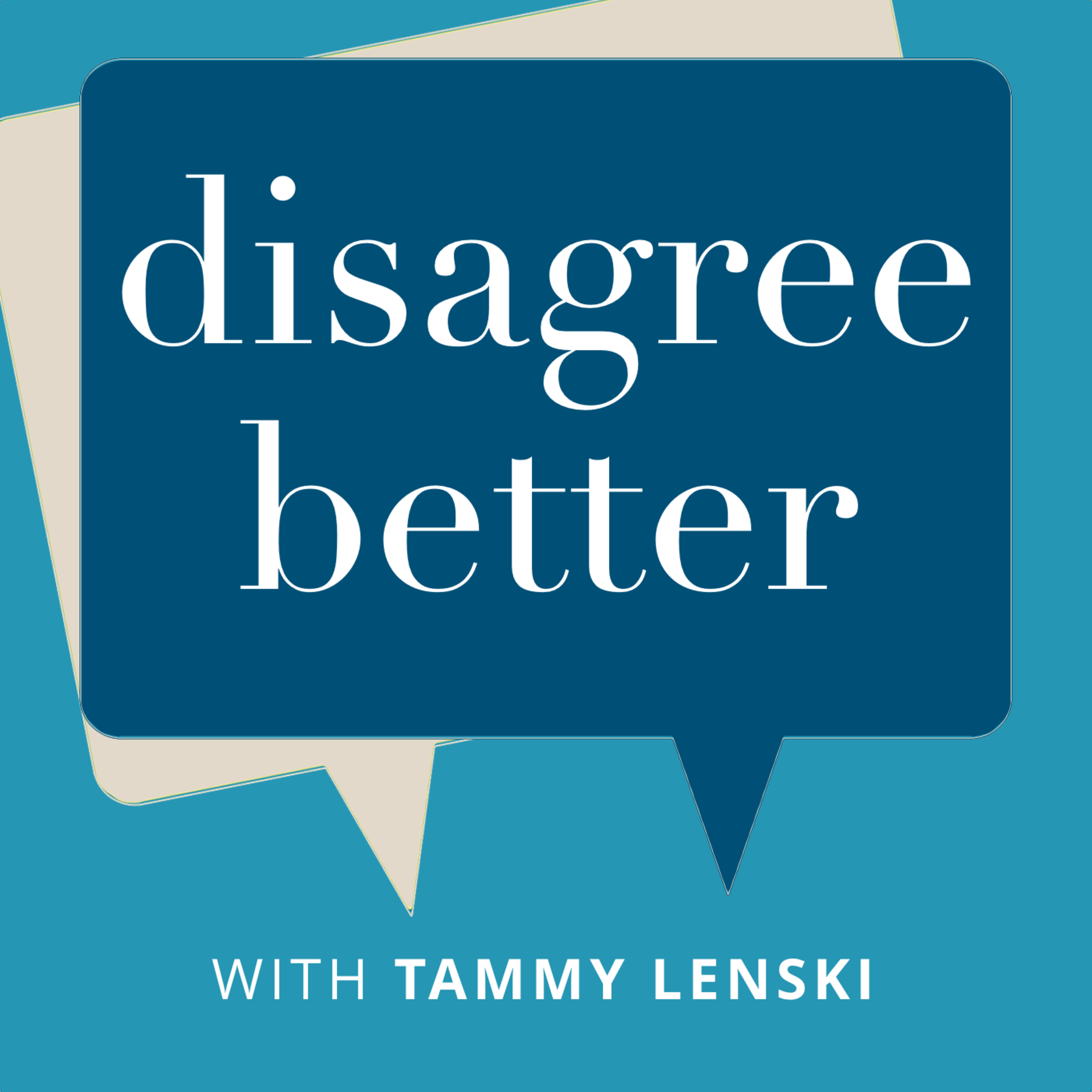 Disagree betterThe key to handling arguments about respectFeeling dissed? Here’s how to raise concerns about disrespect in a way that increases dialogue and decreases pushback.
Find the transcript with links here.
To receive transcripts of new episodes automatically, subscribe at tammylenski.com/subscribe/.2016-09-2604 min
Disagree betterThe key to handling arguments about respectFeeling dissed? Here’s how to raise concerns about disrespect in a way that increases dialogue and decreases pushback.
Find the transcript with links here.
To receive transcripts of new episodes automatically, subscribe at tammylenski.com/subscribe/.2016-09-2604 min